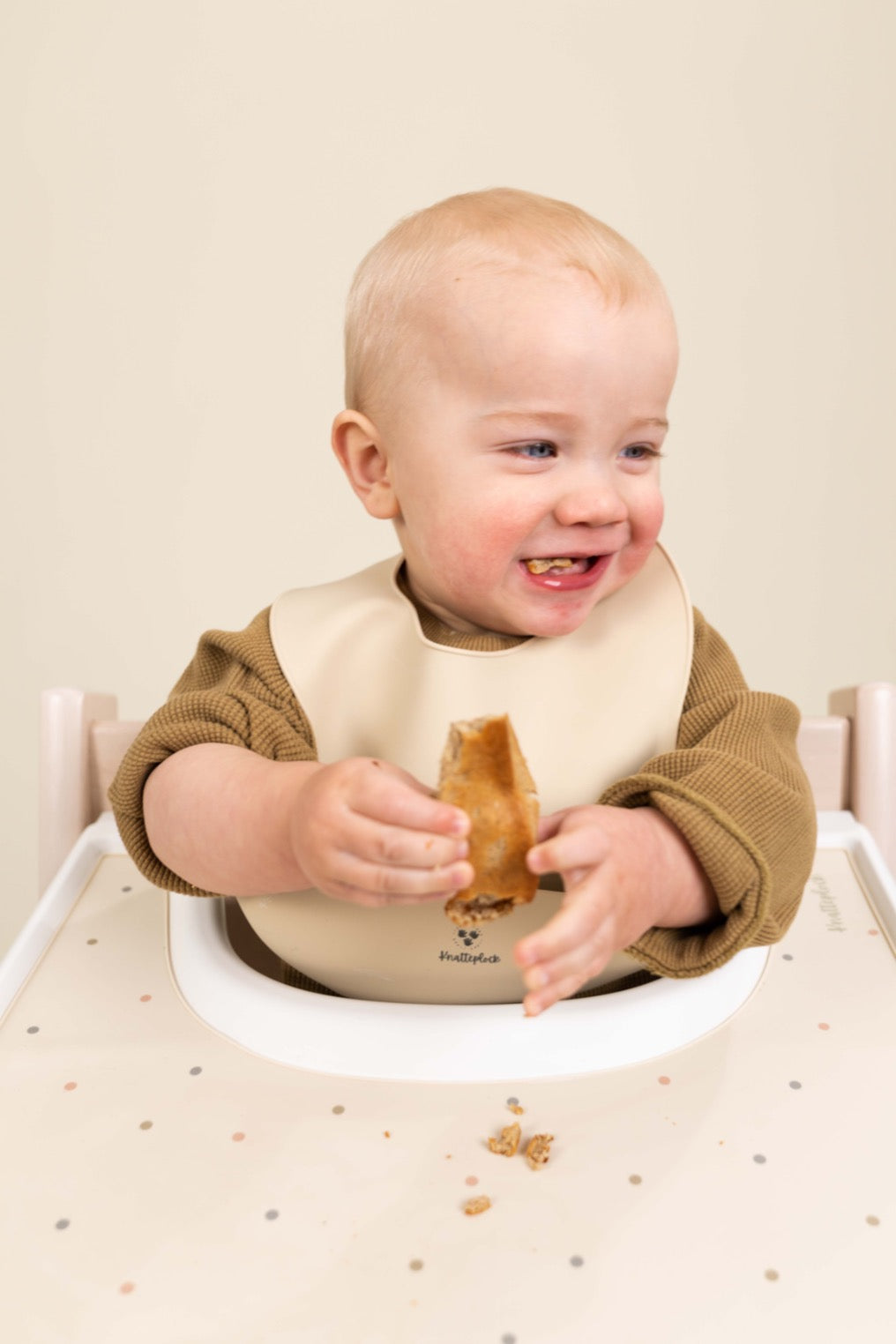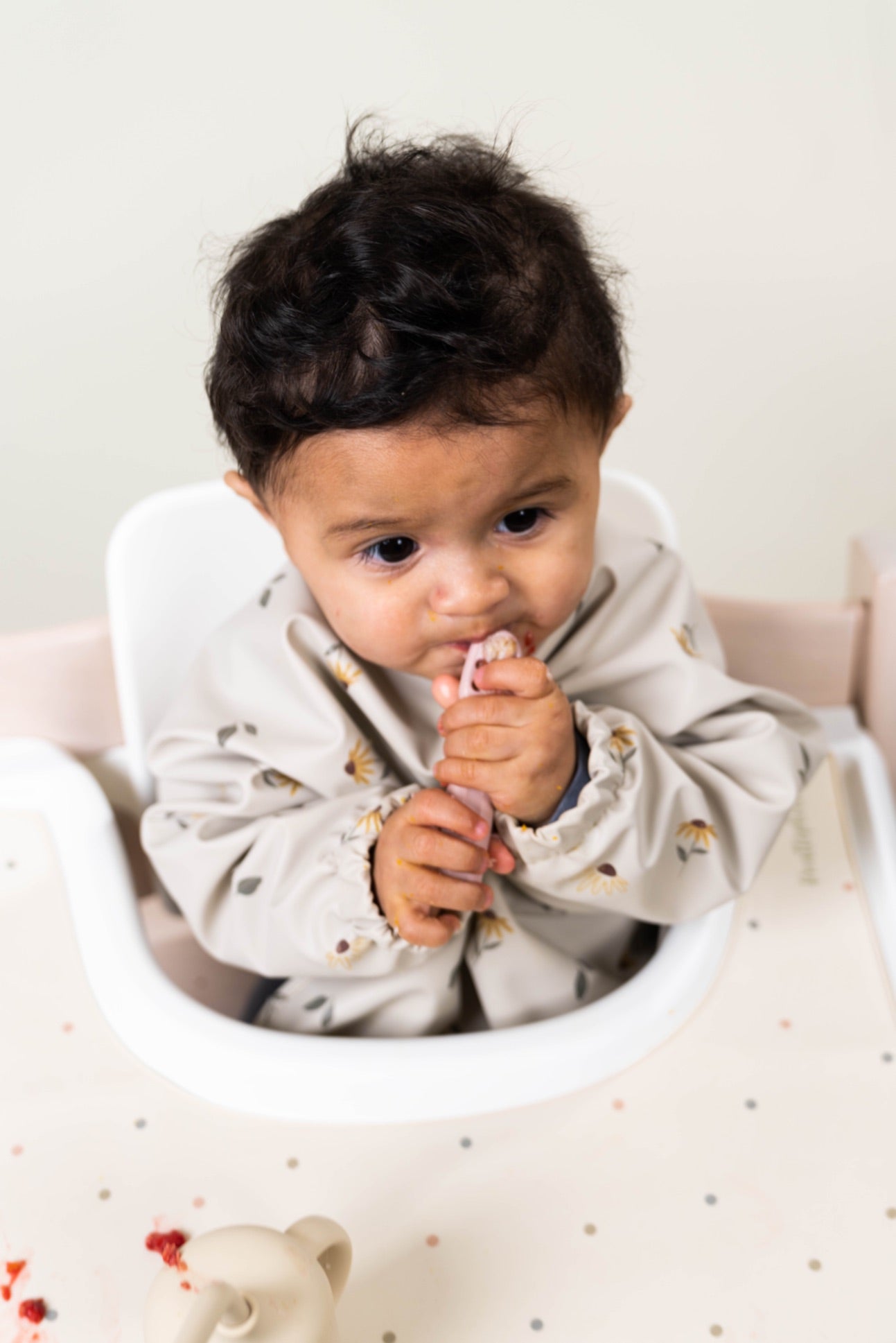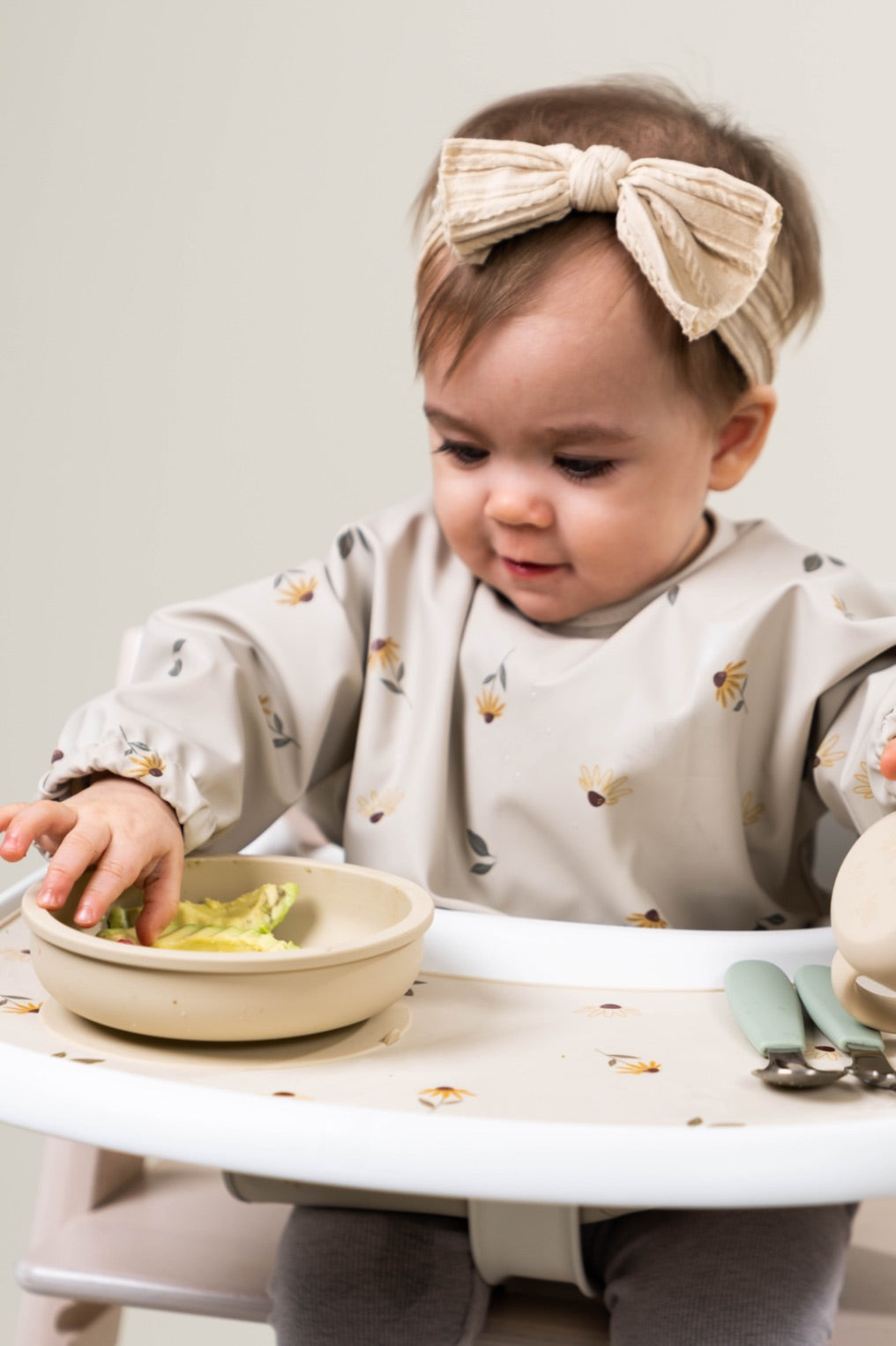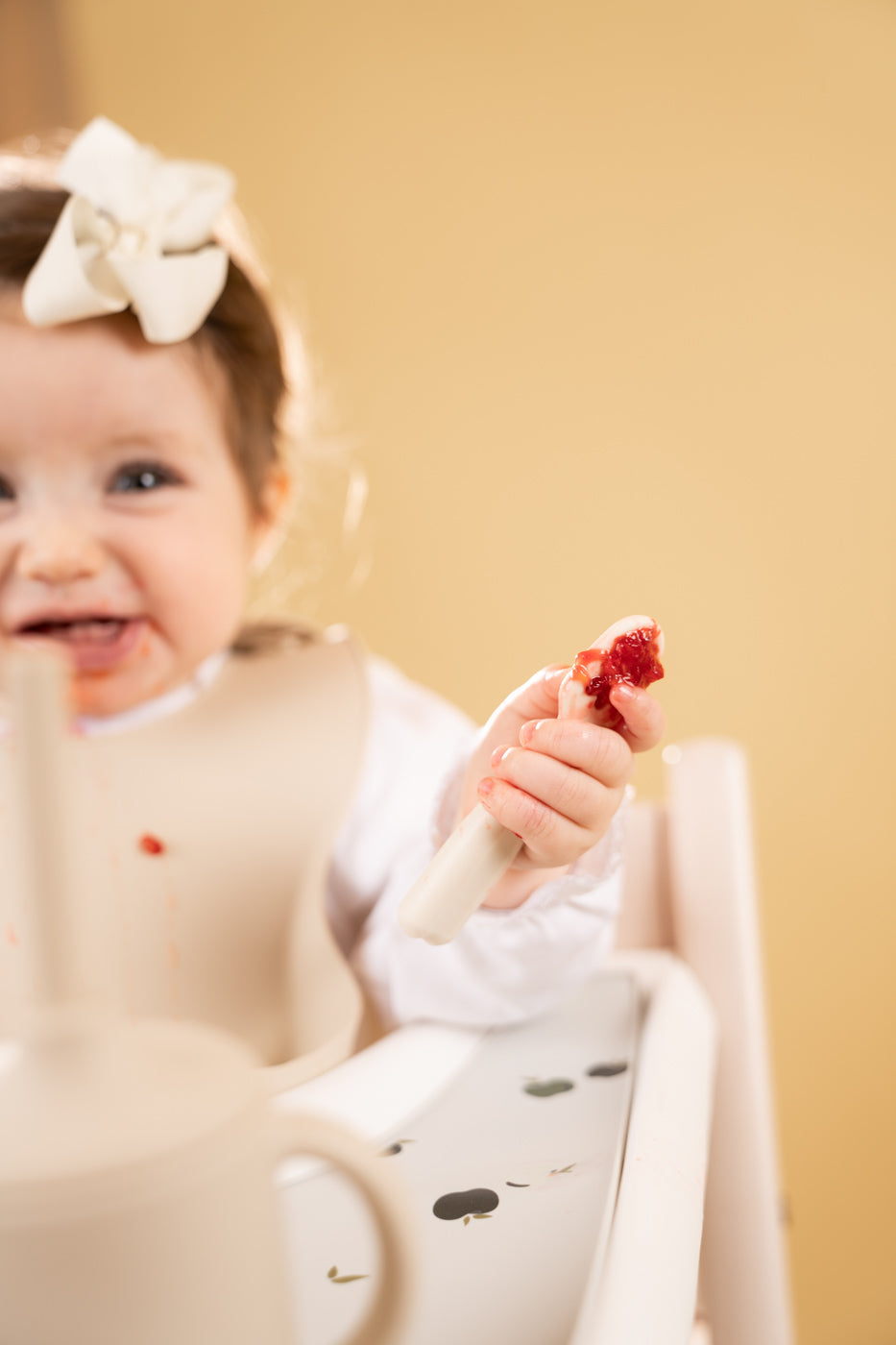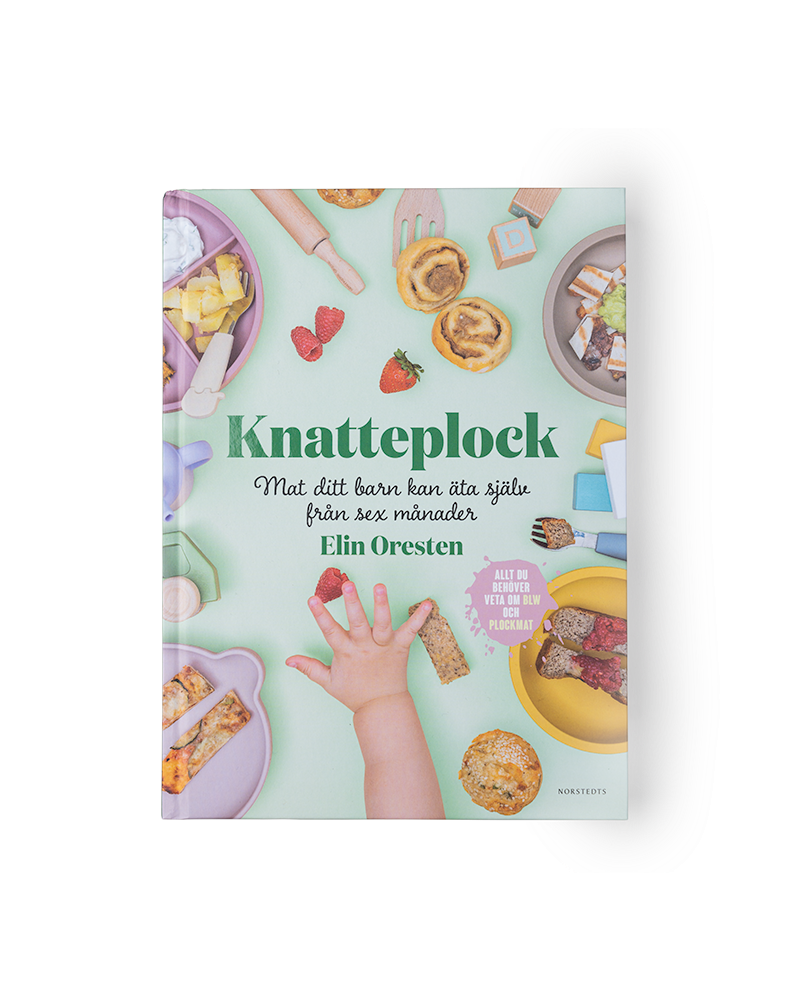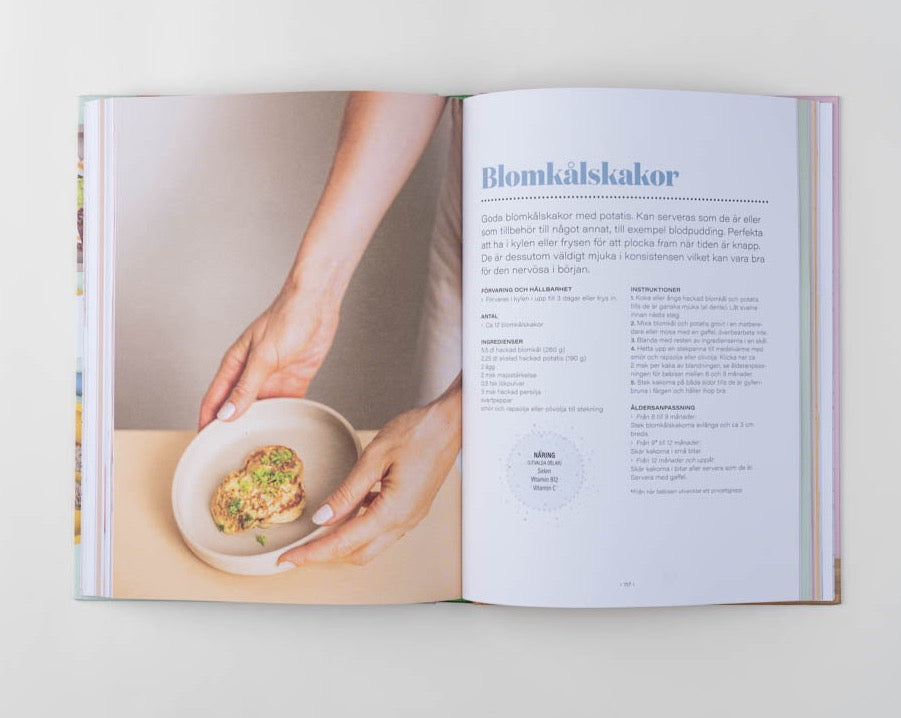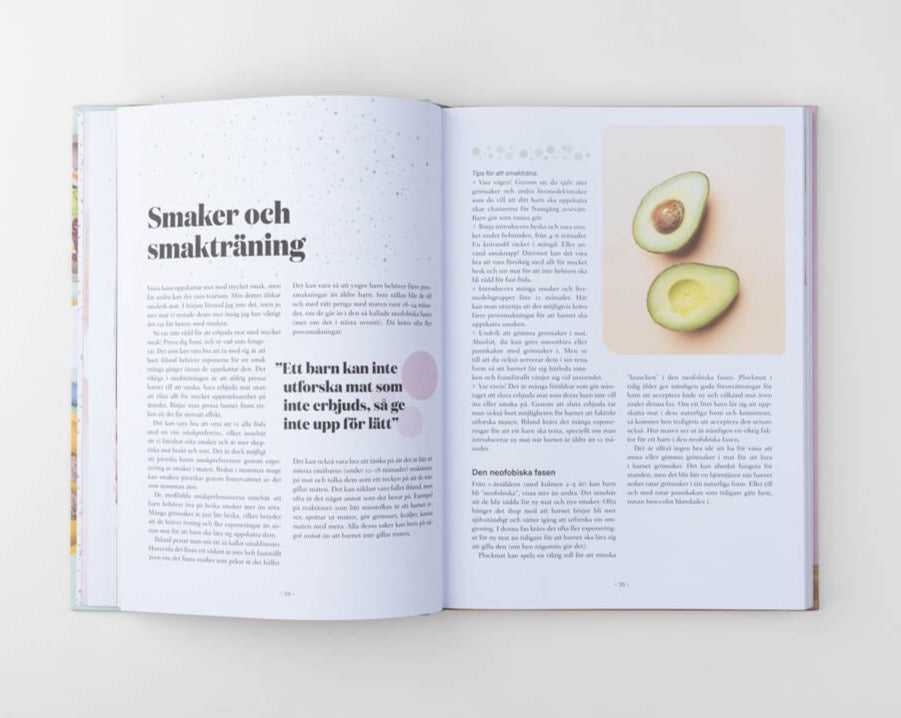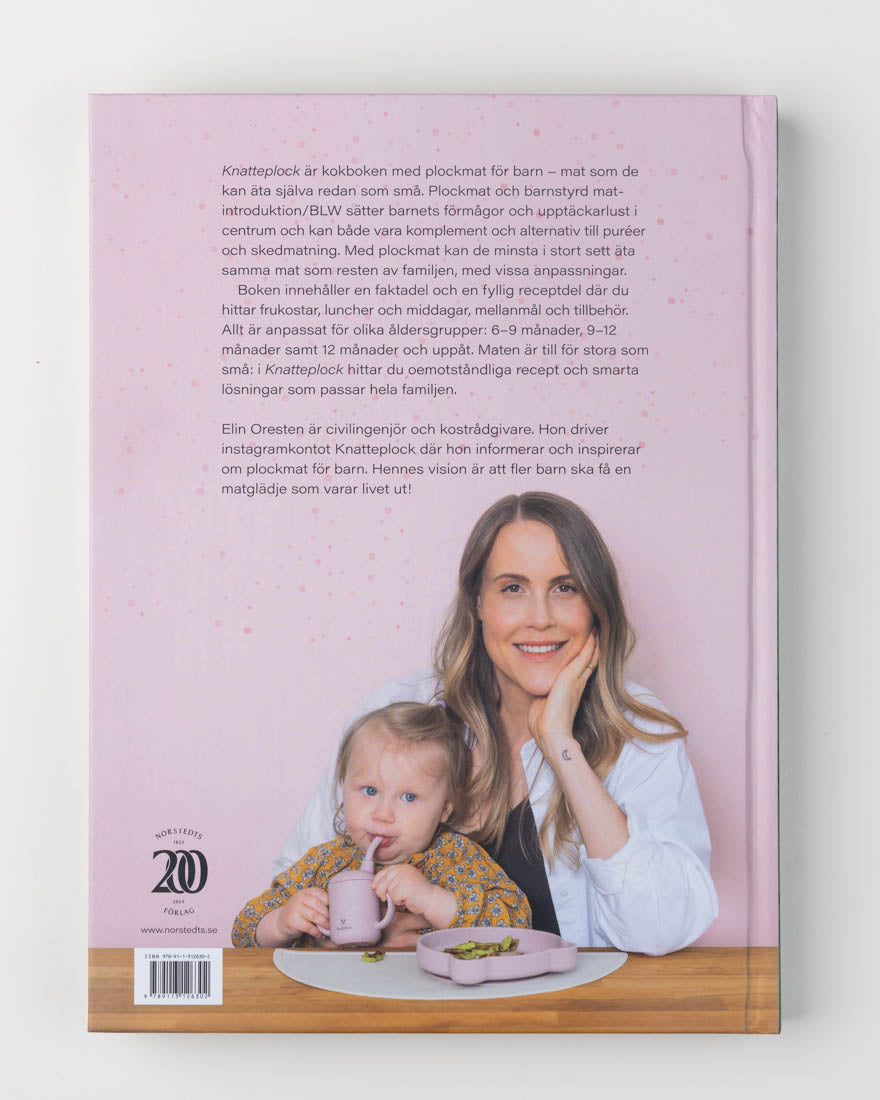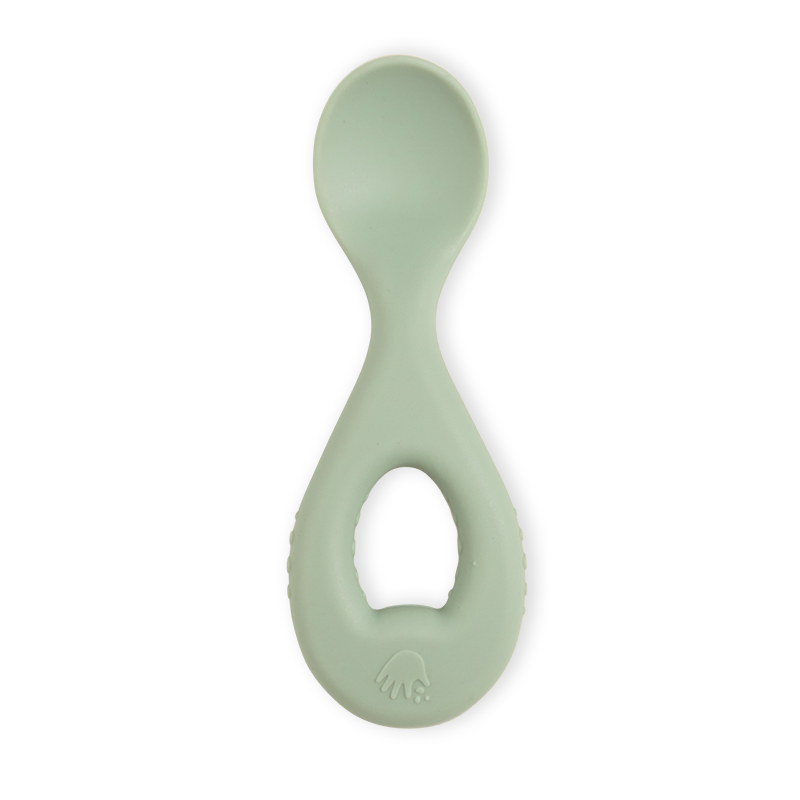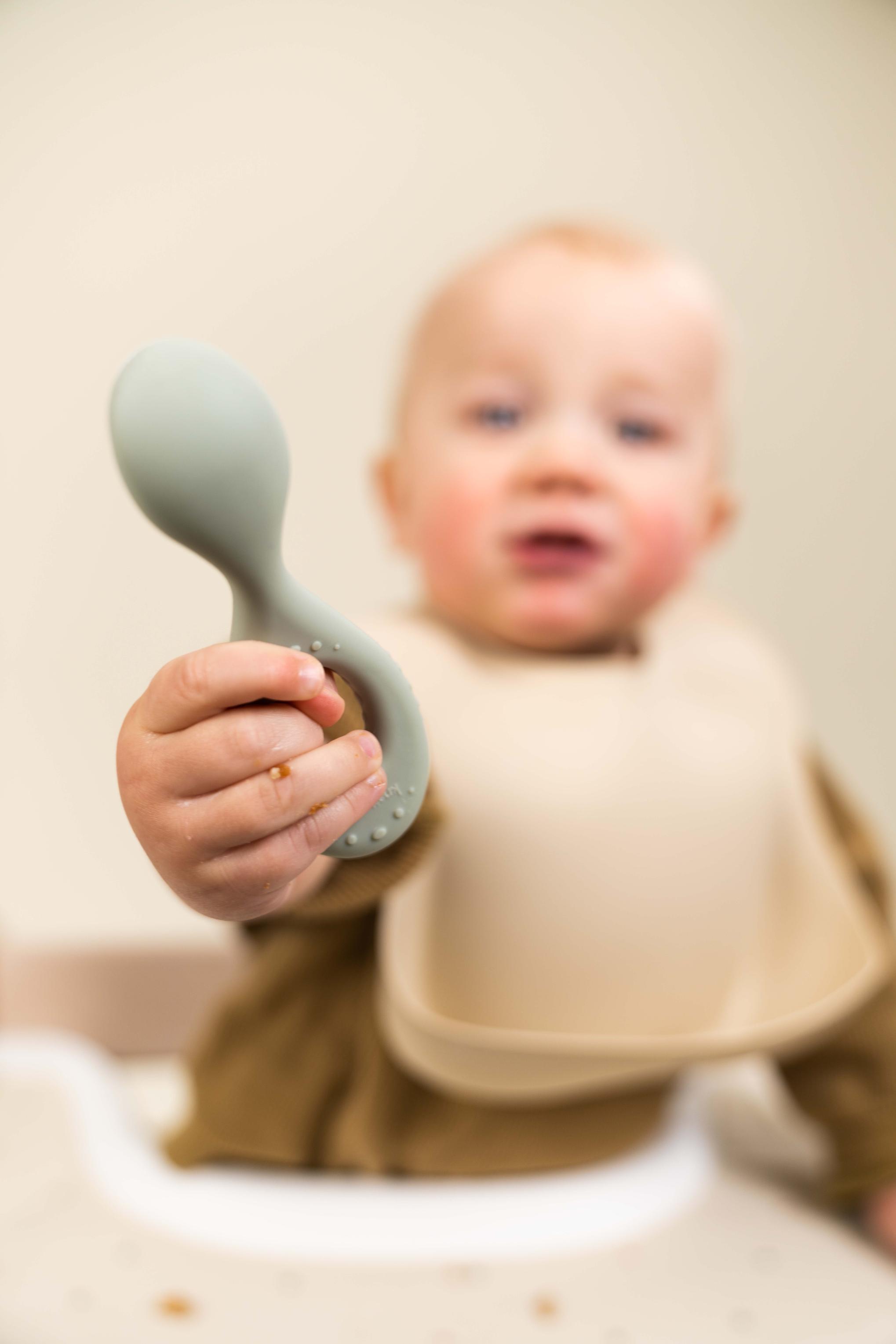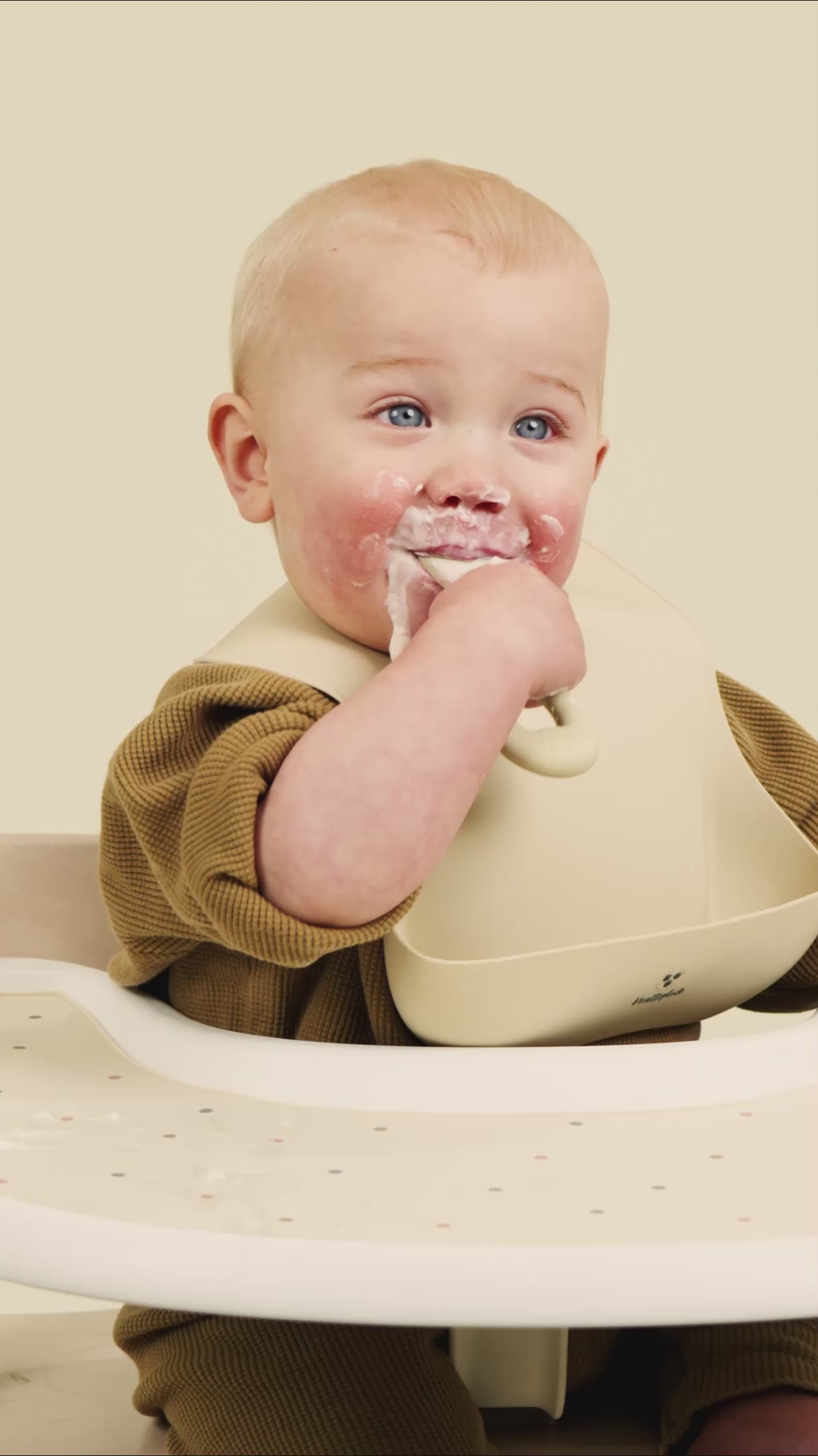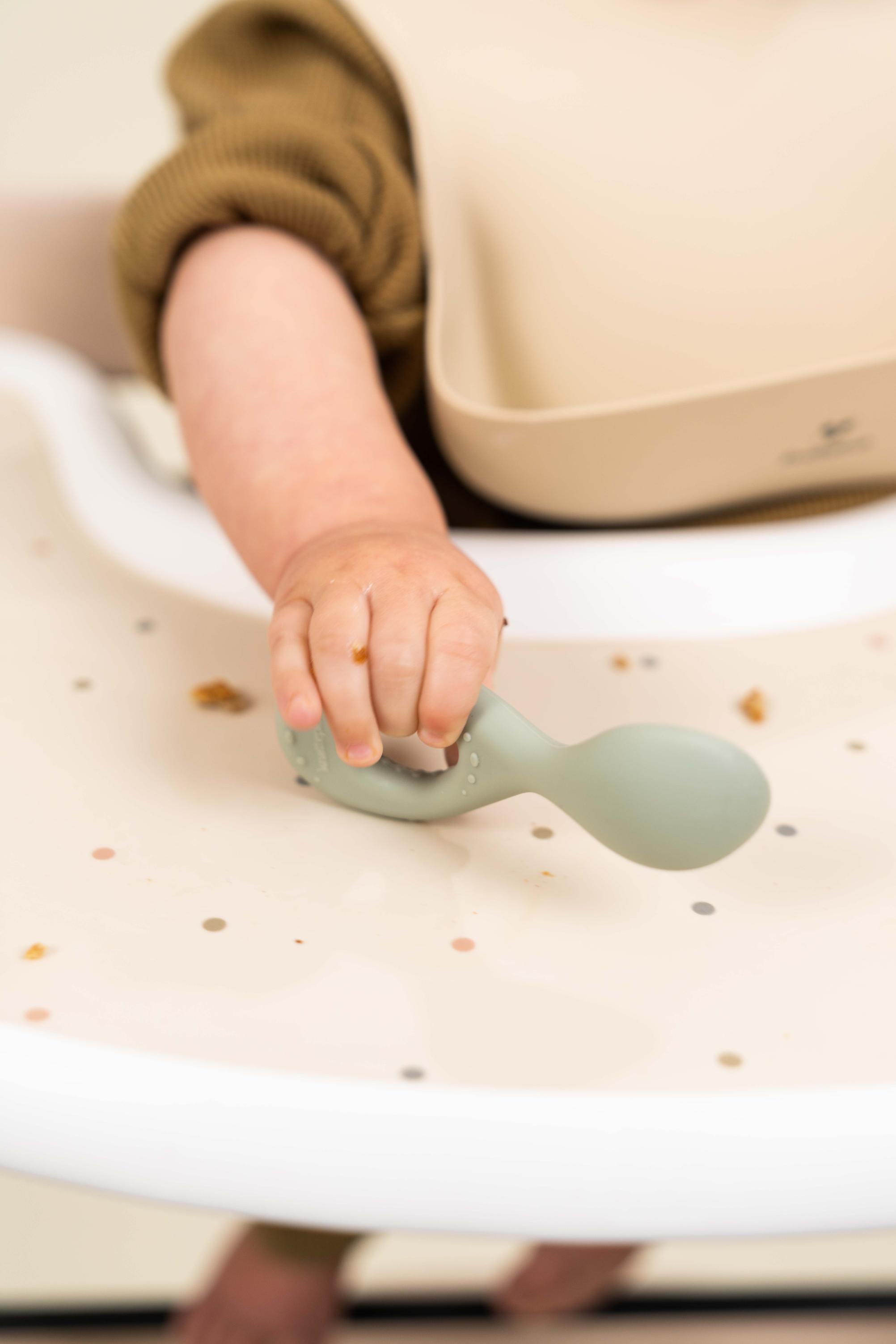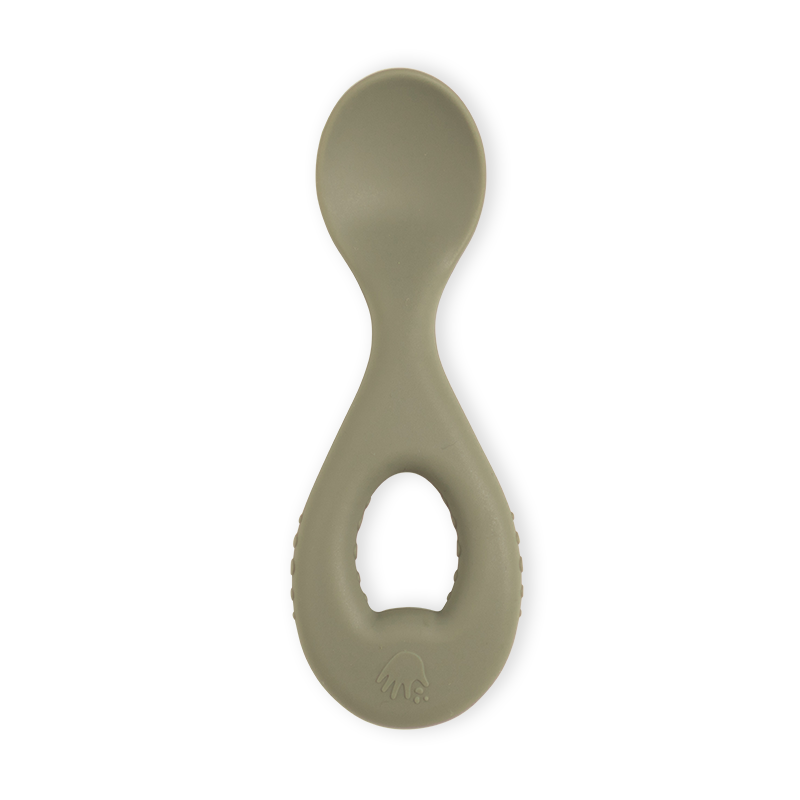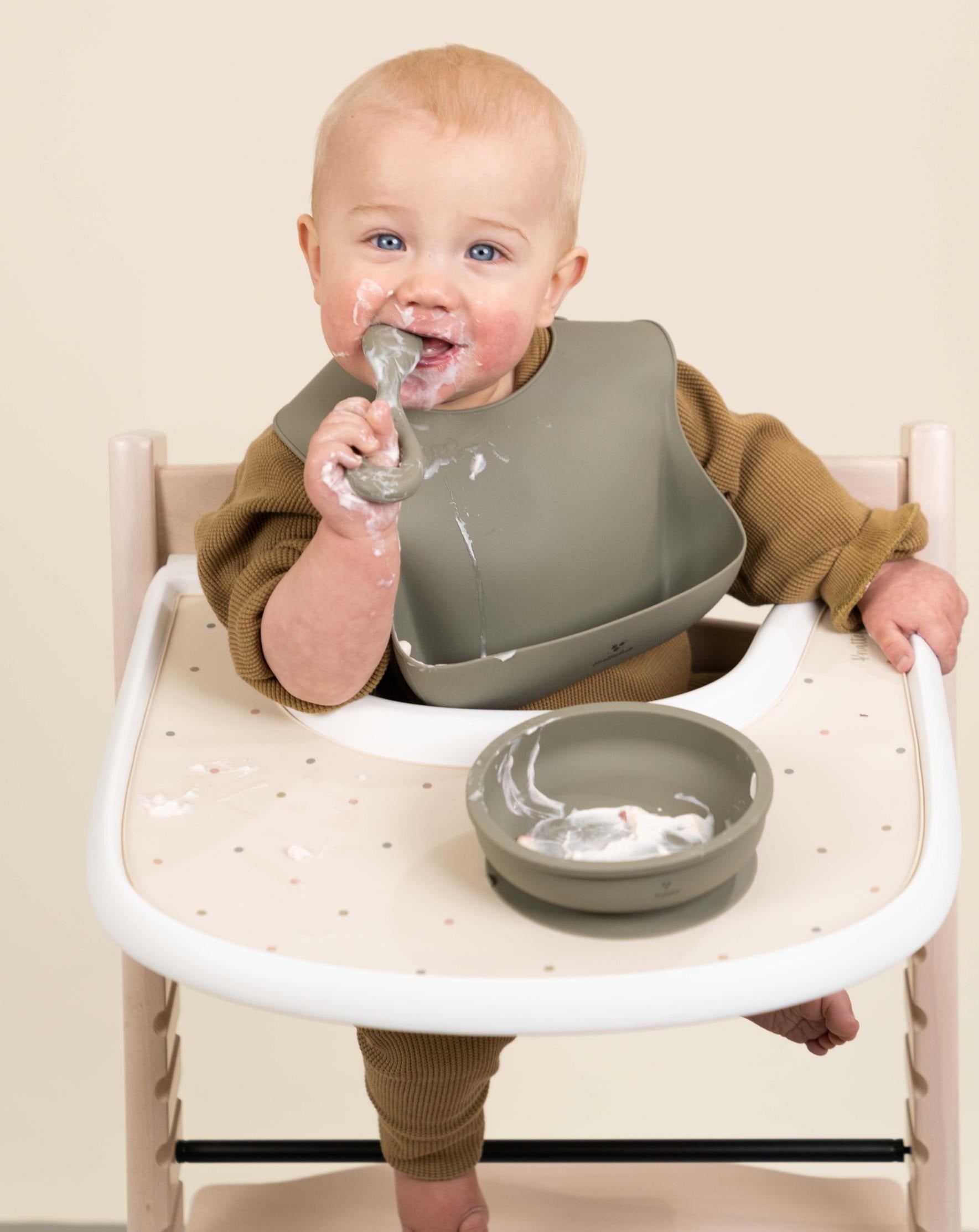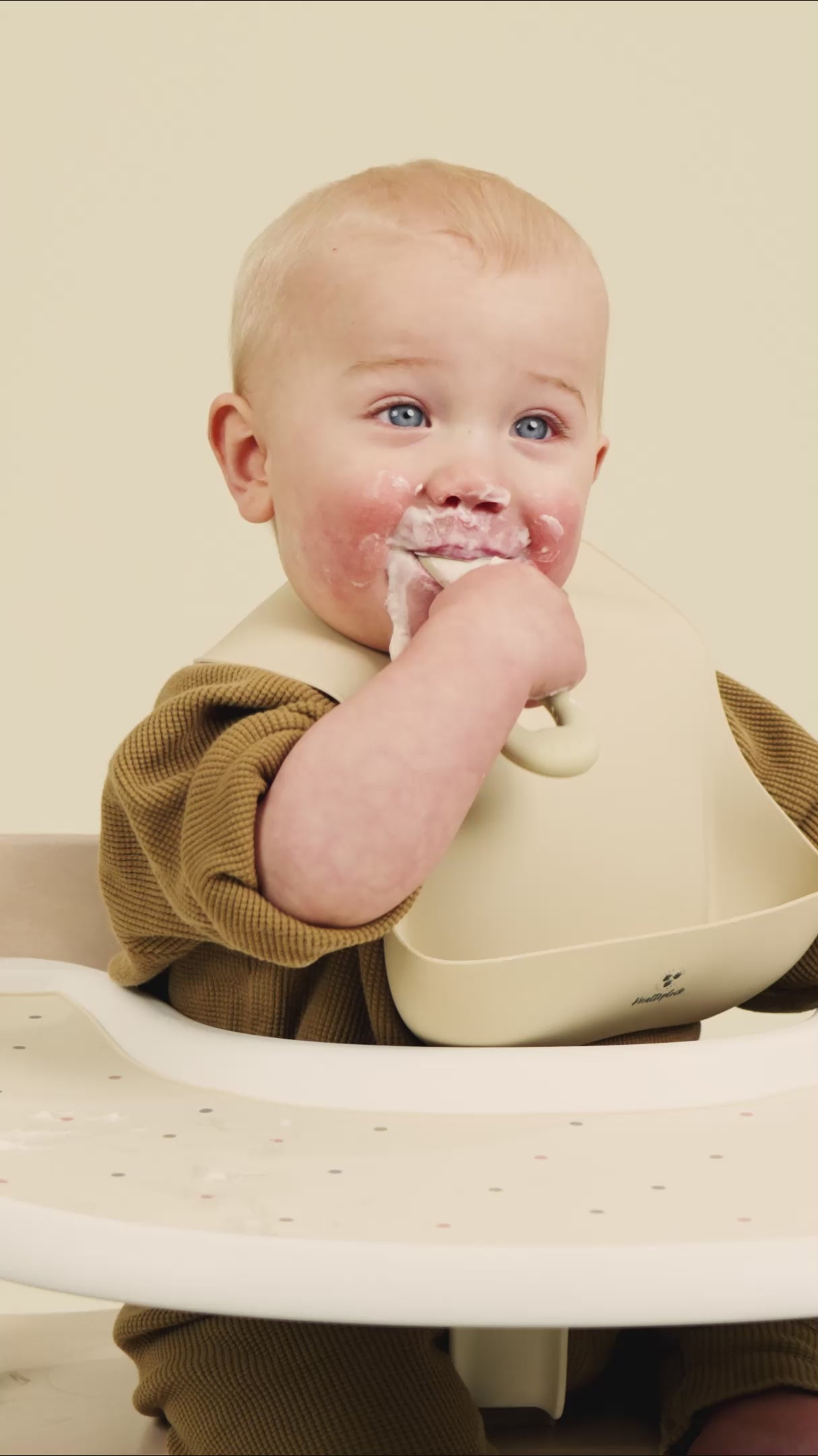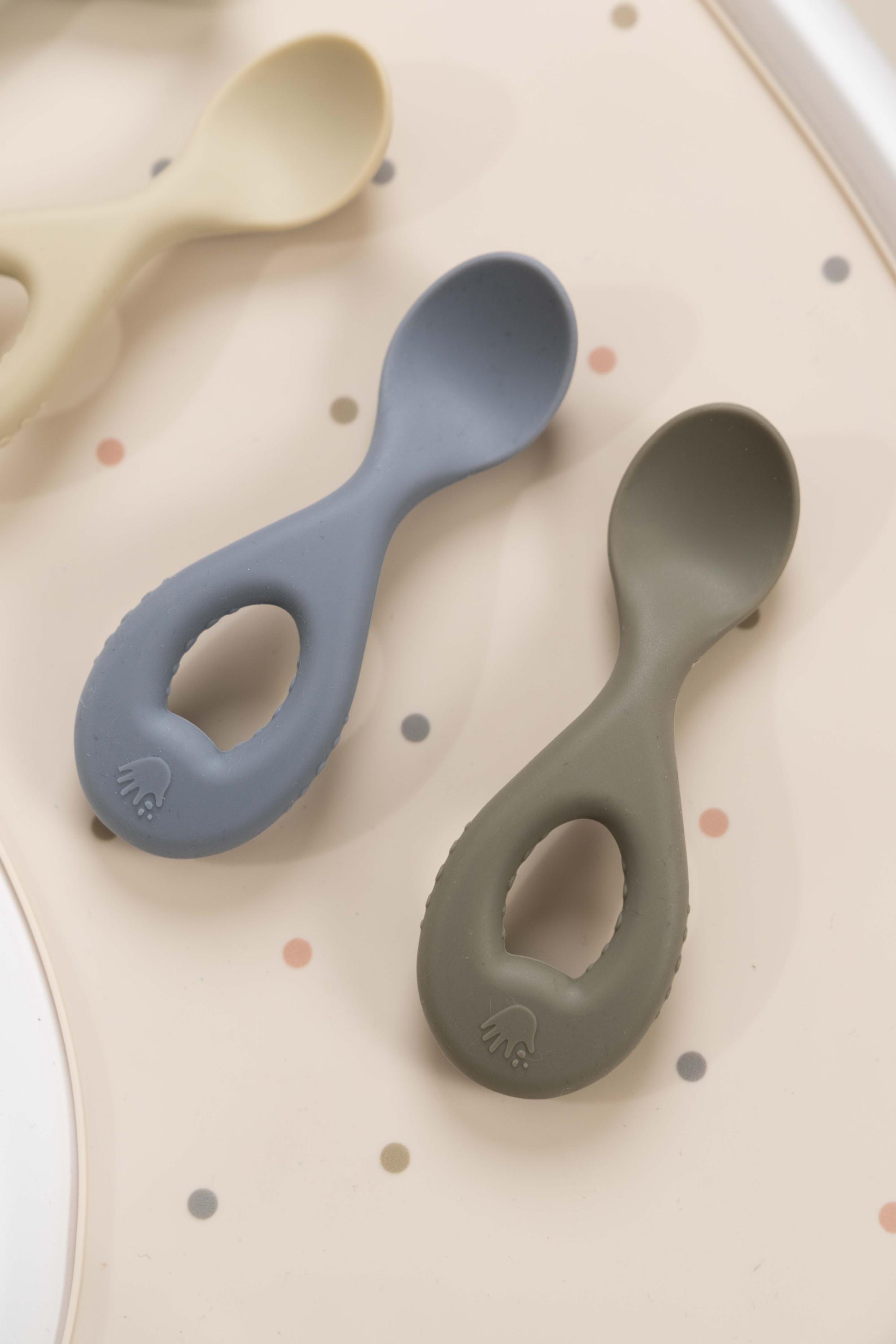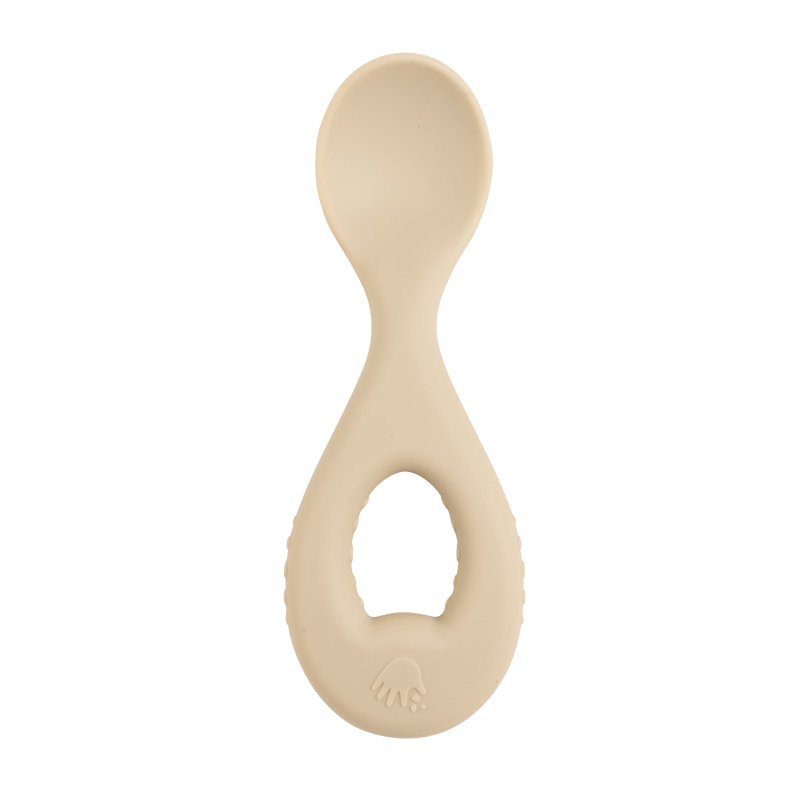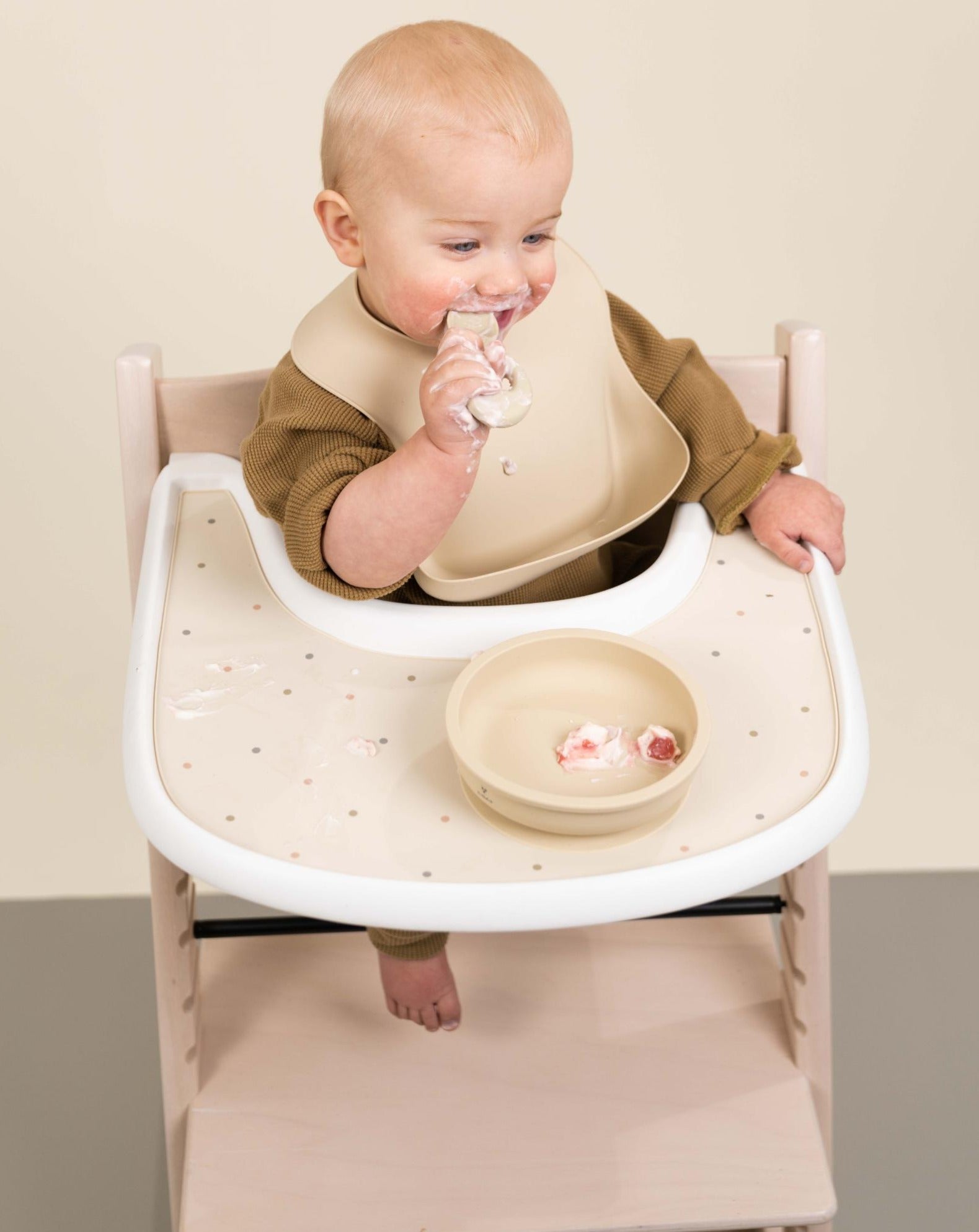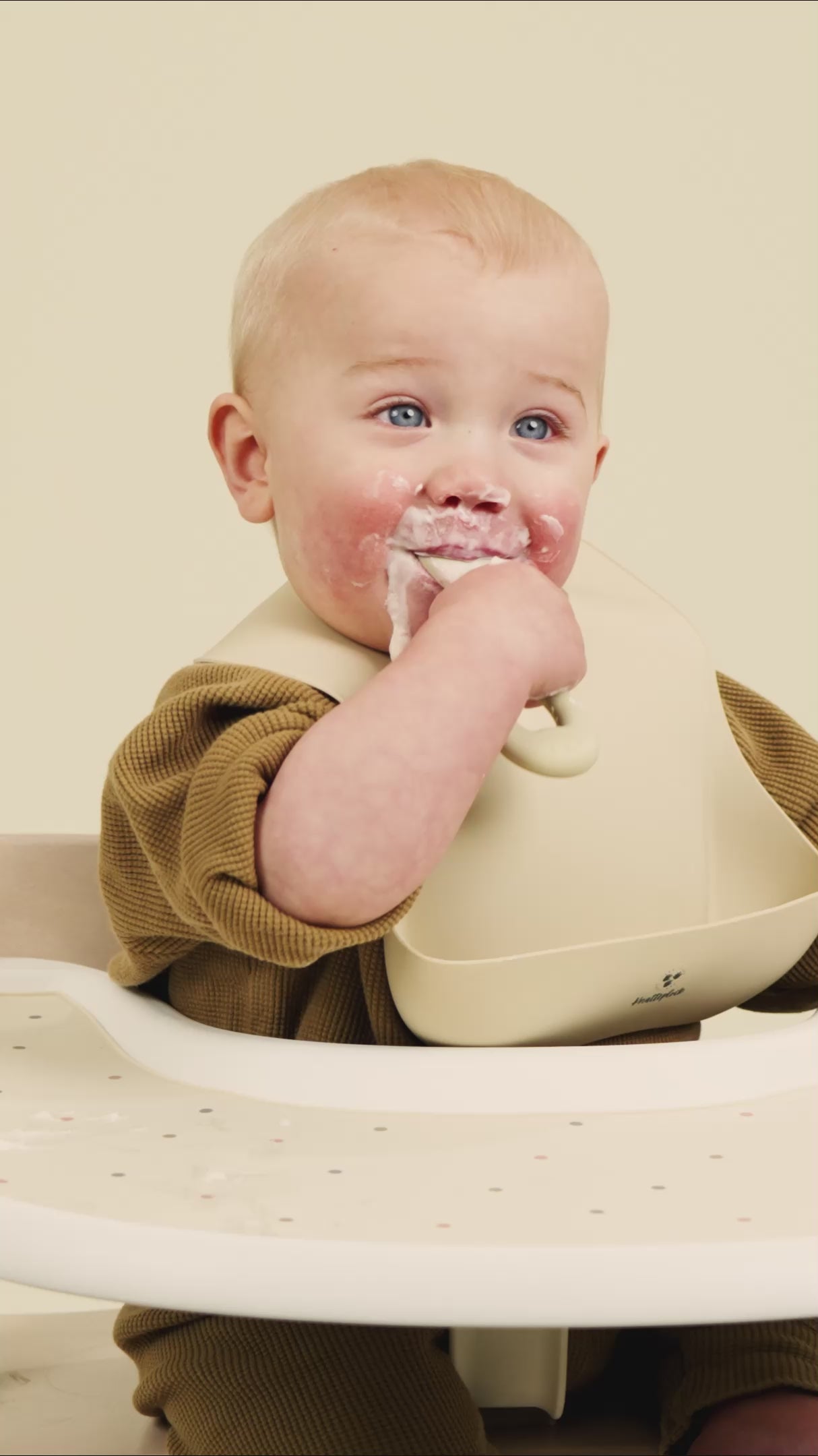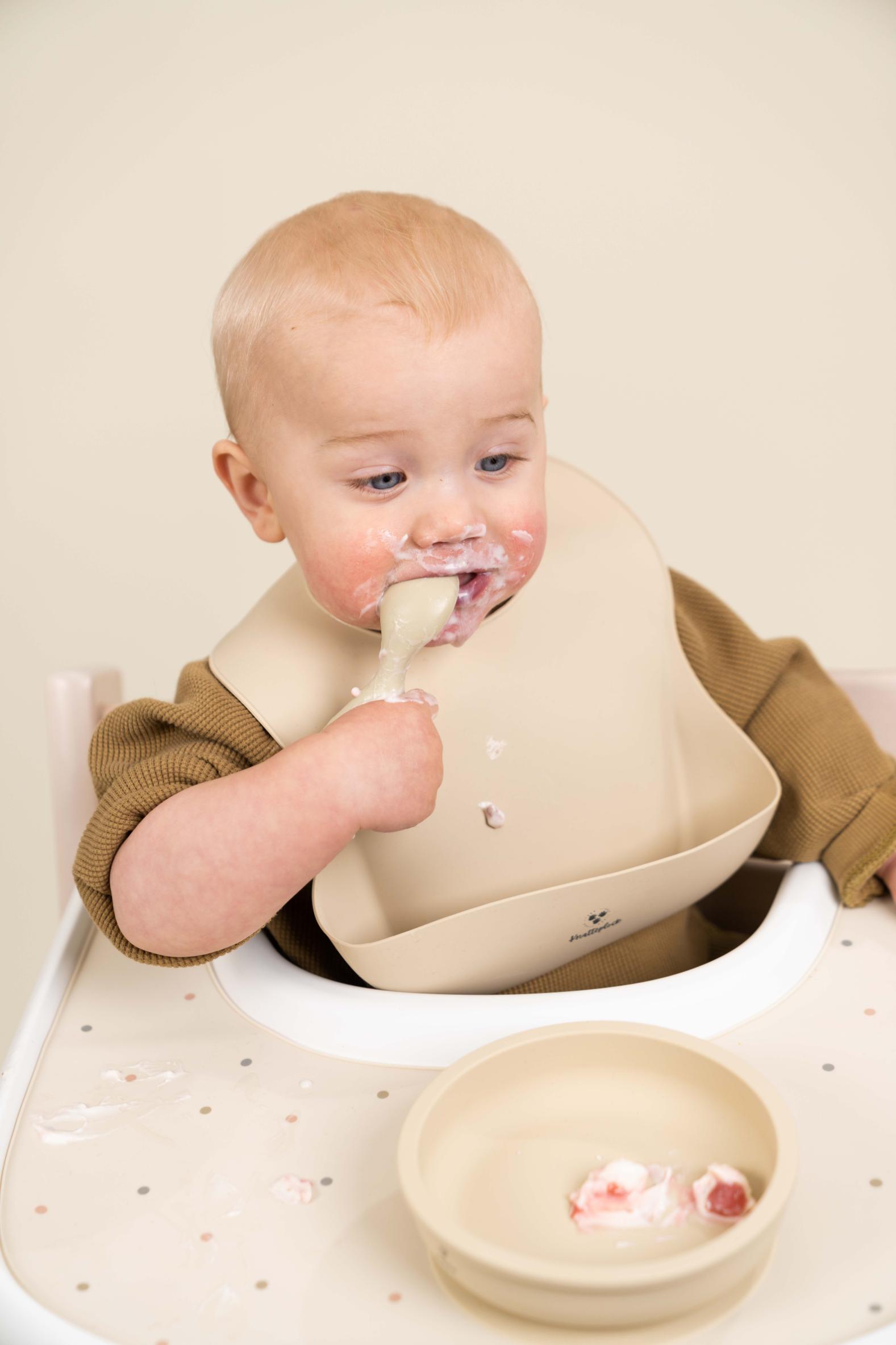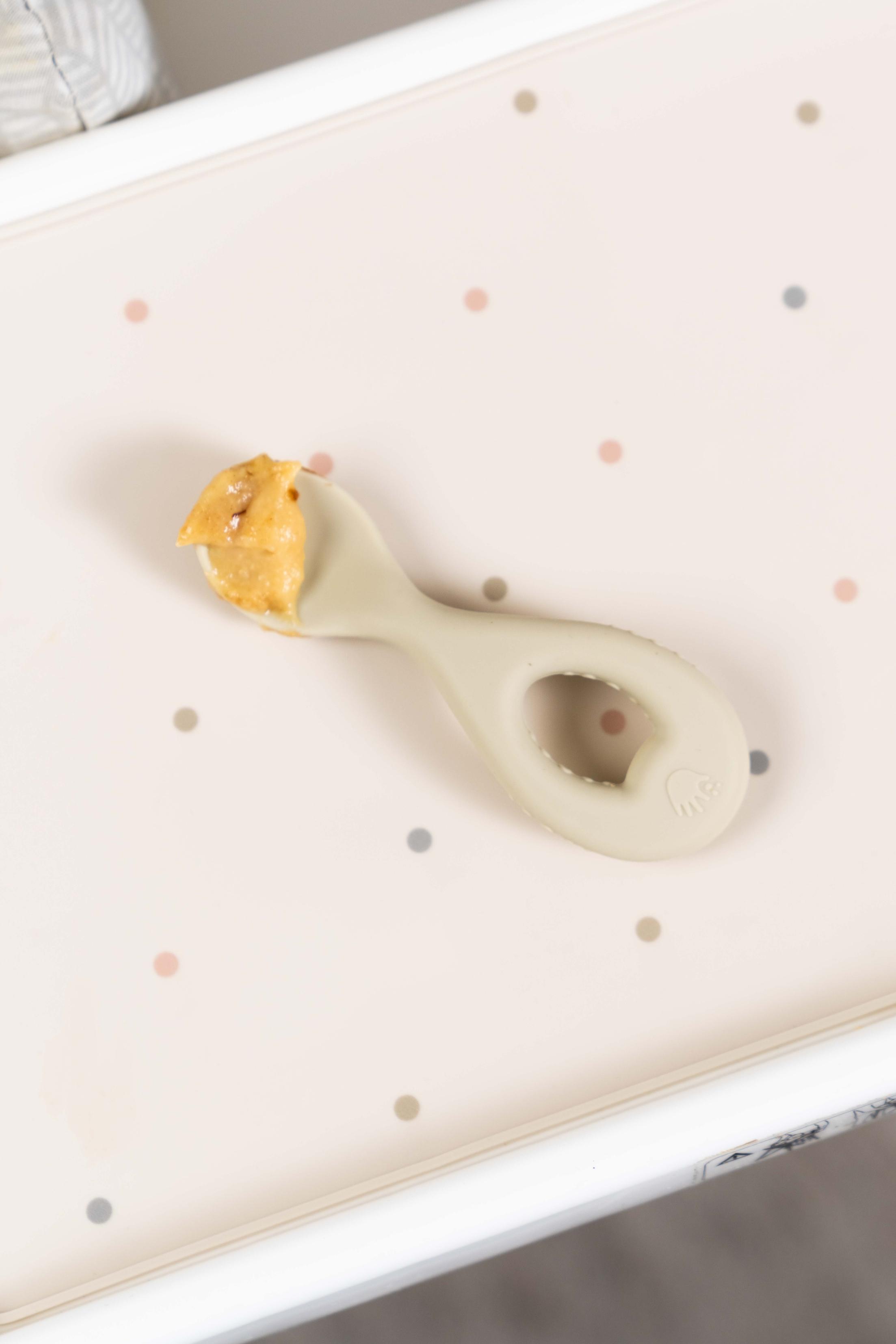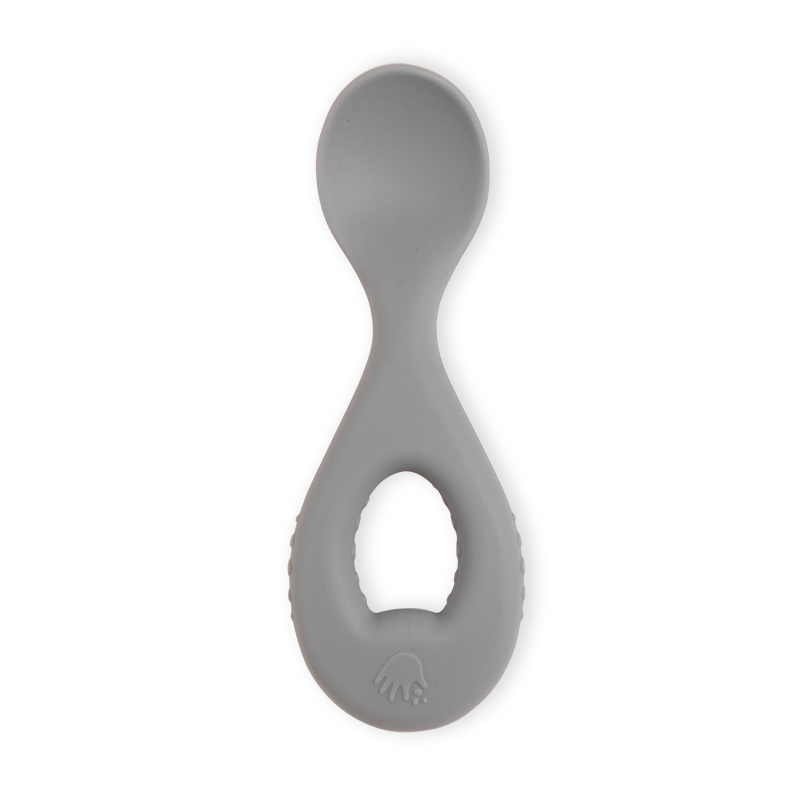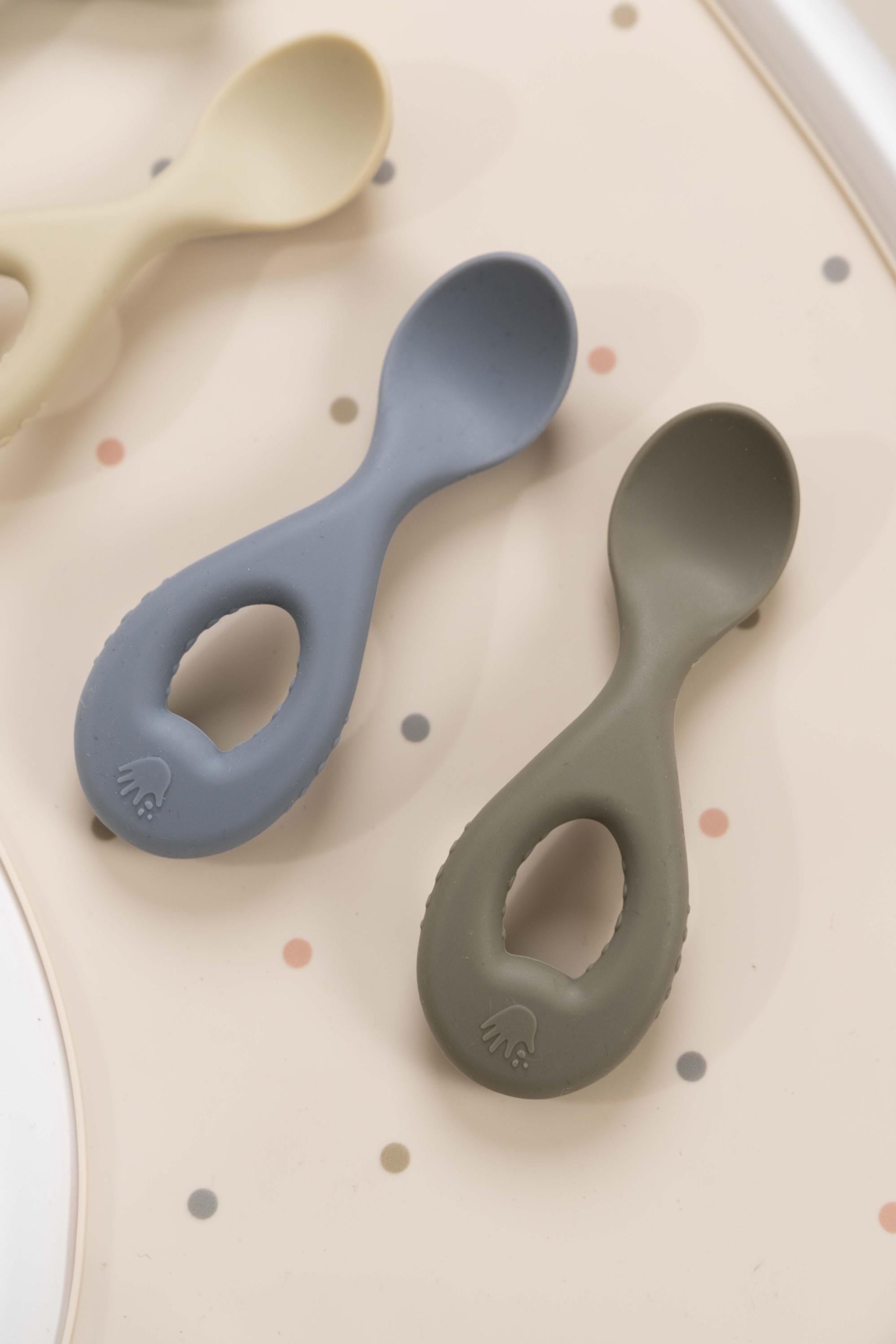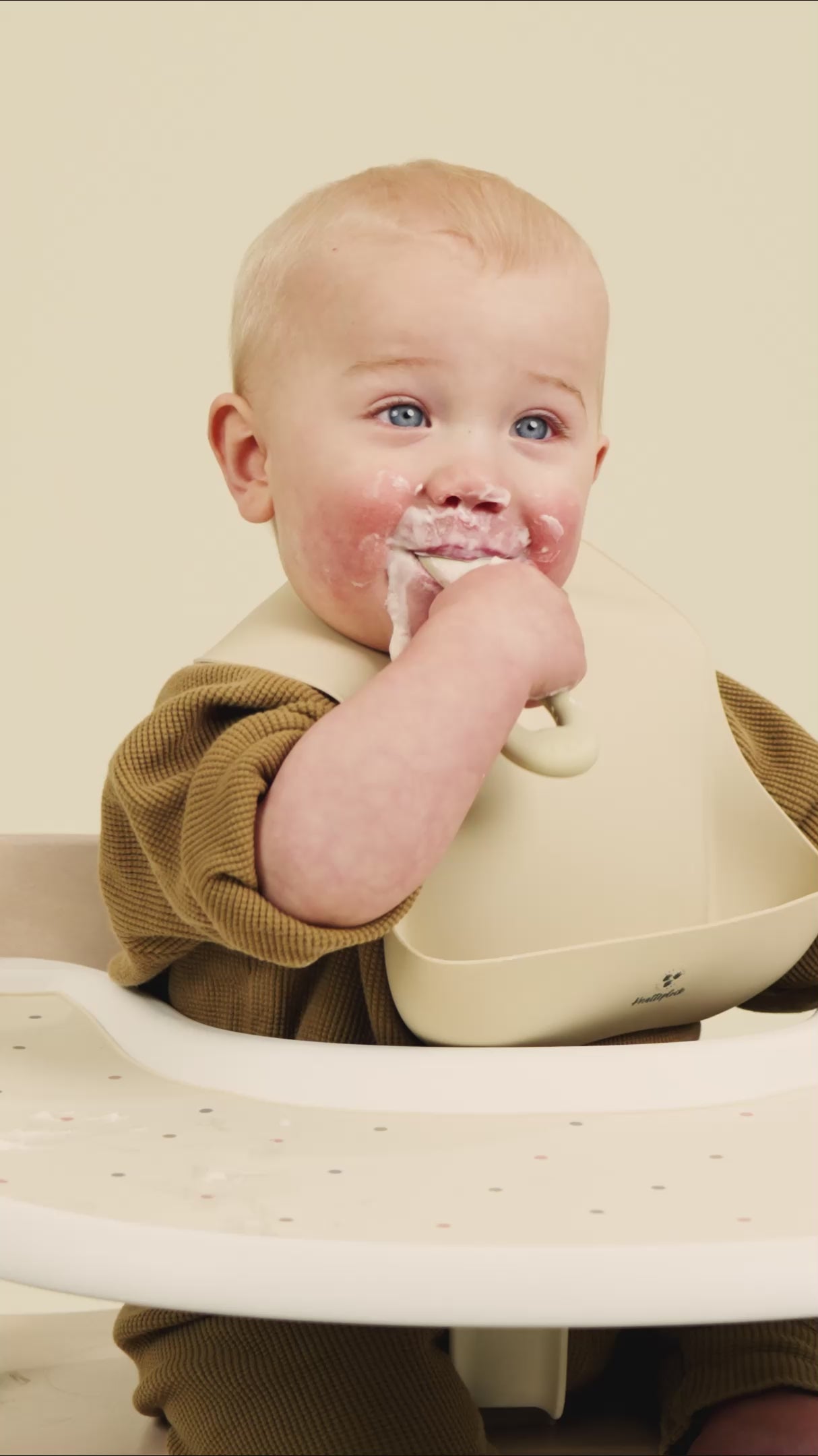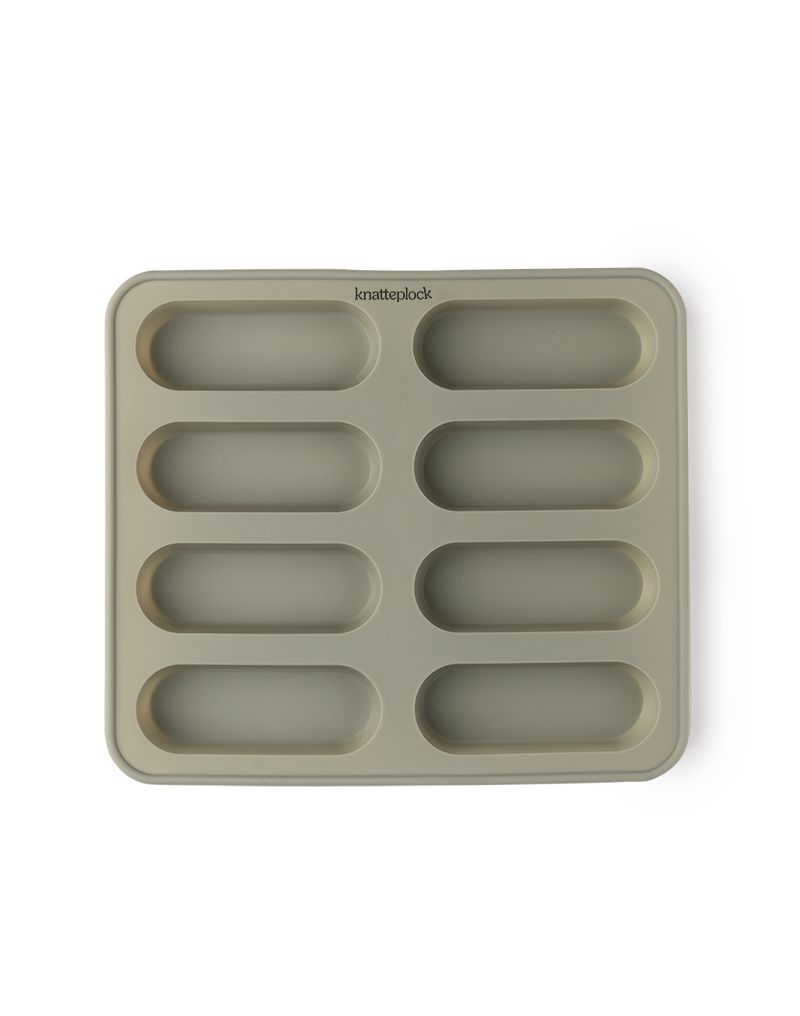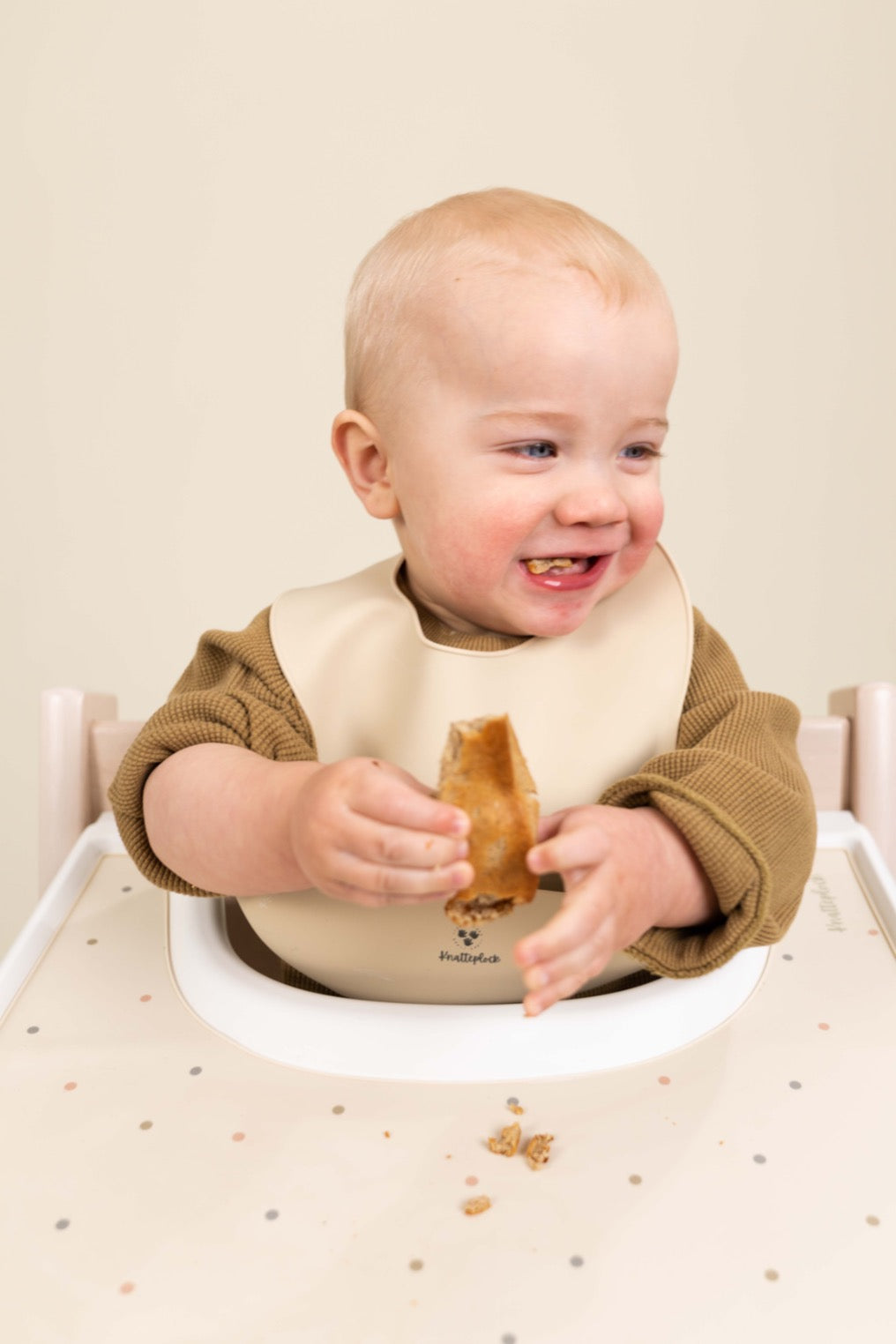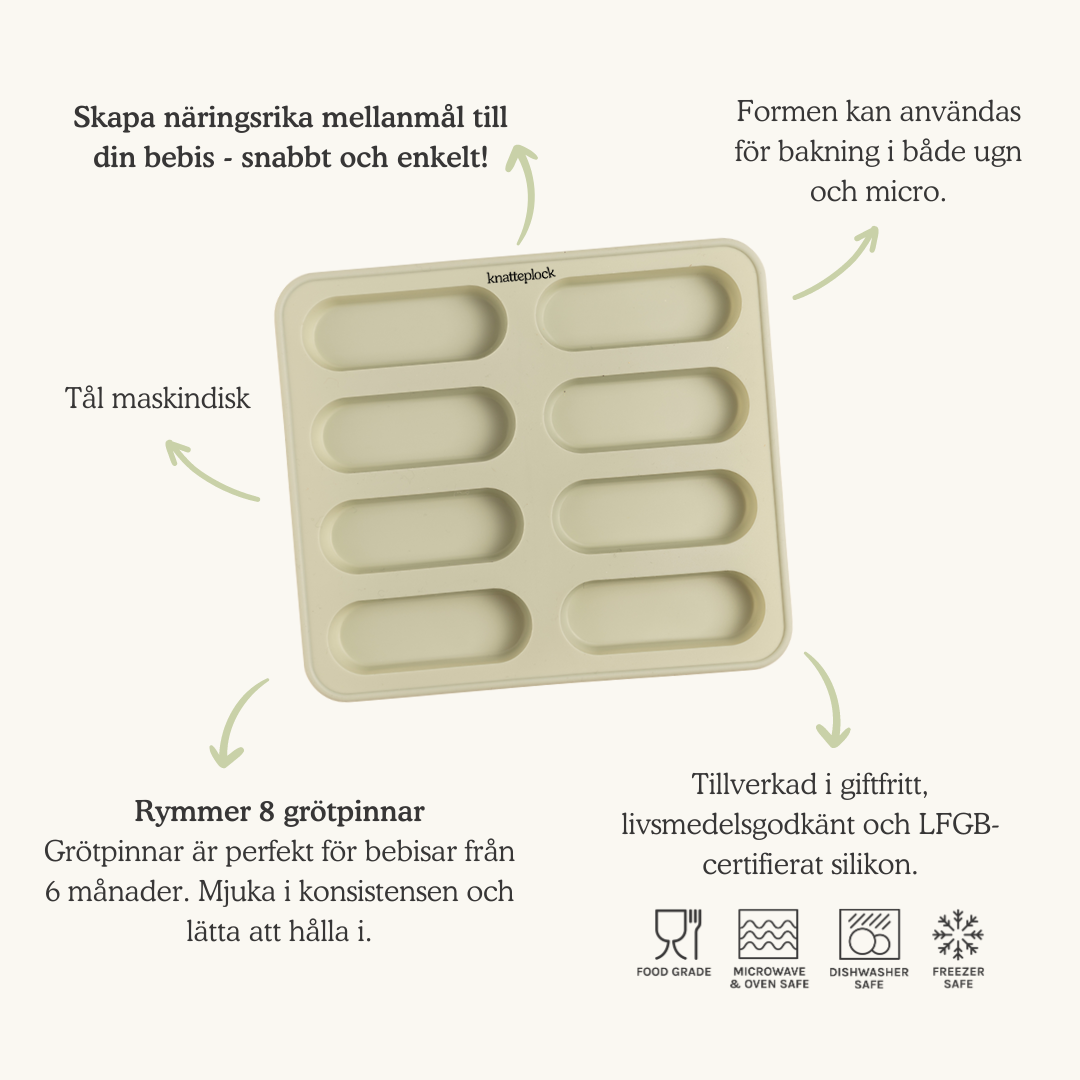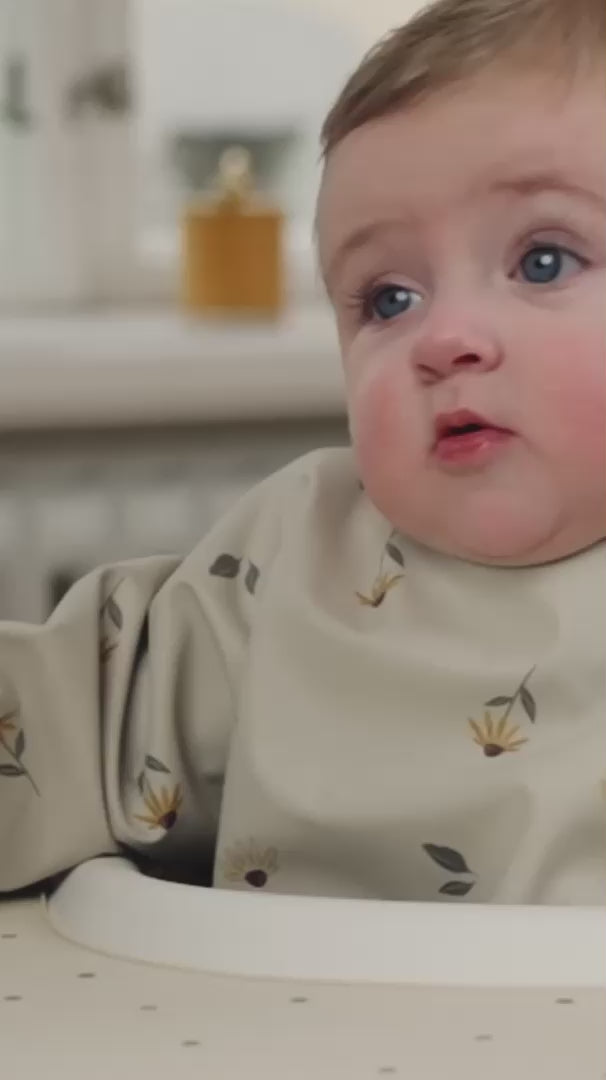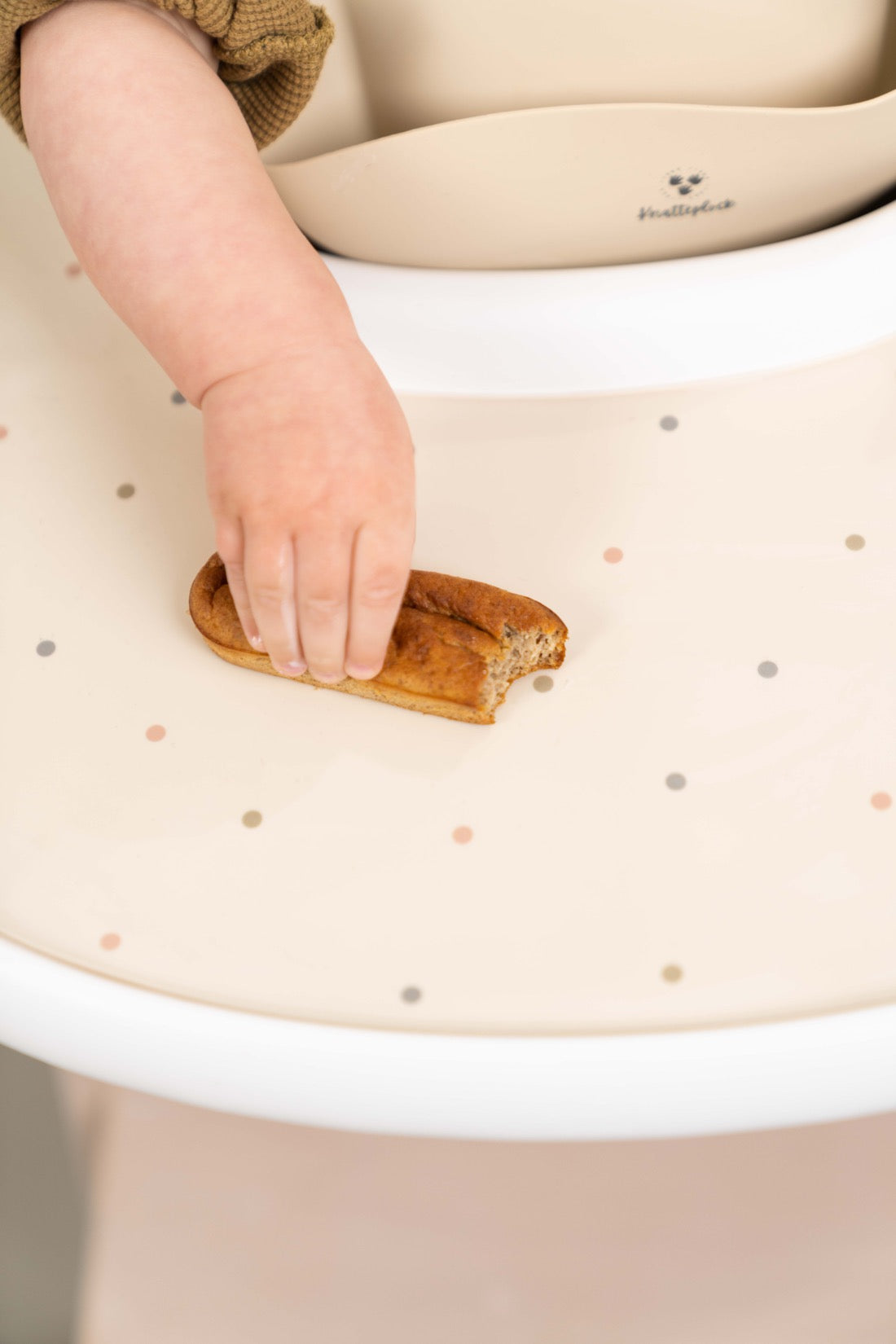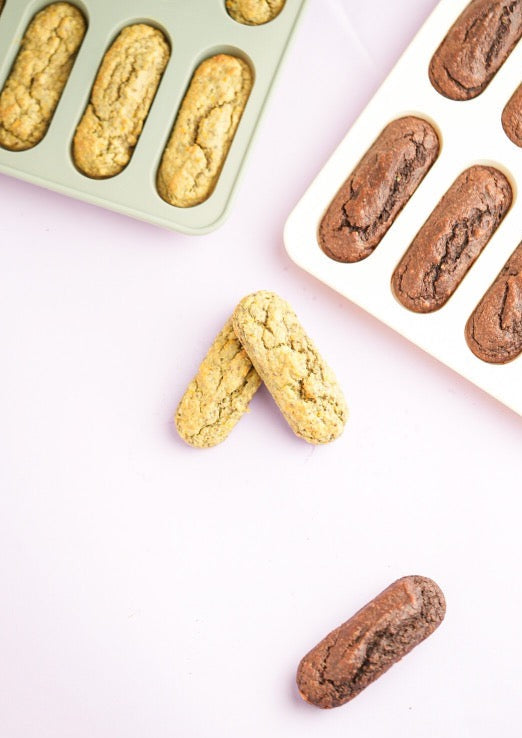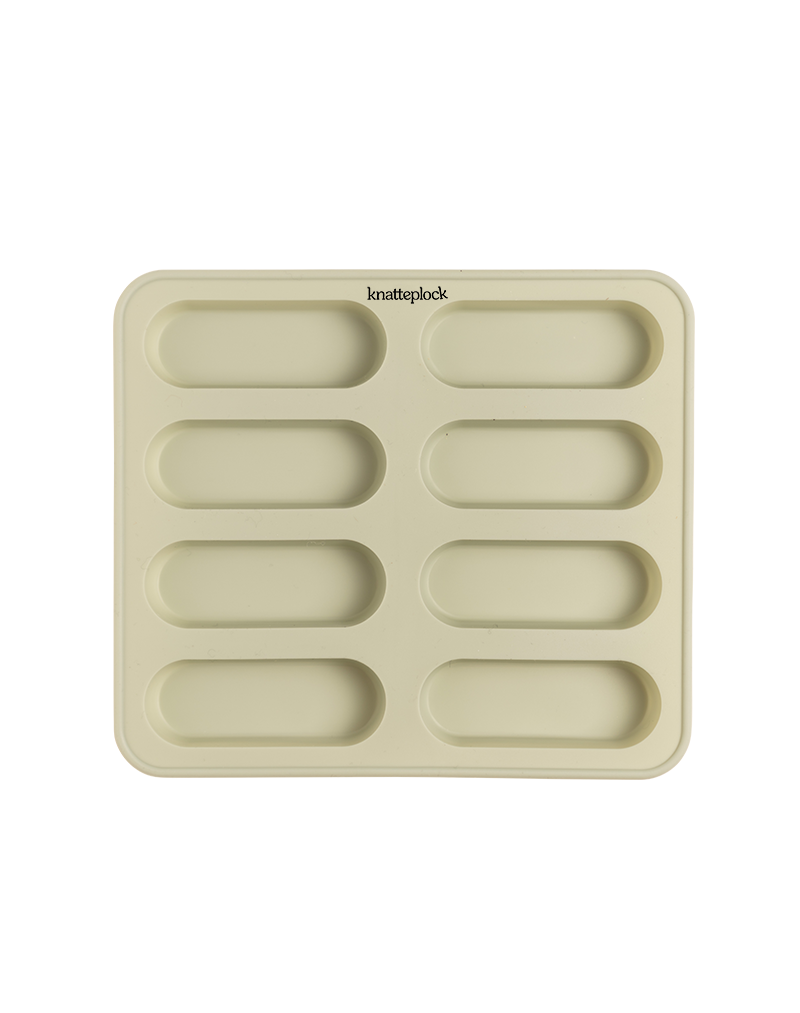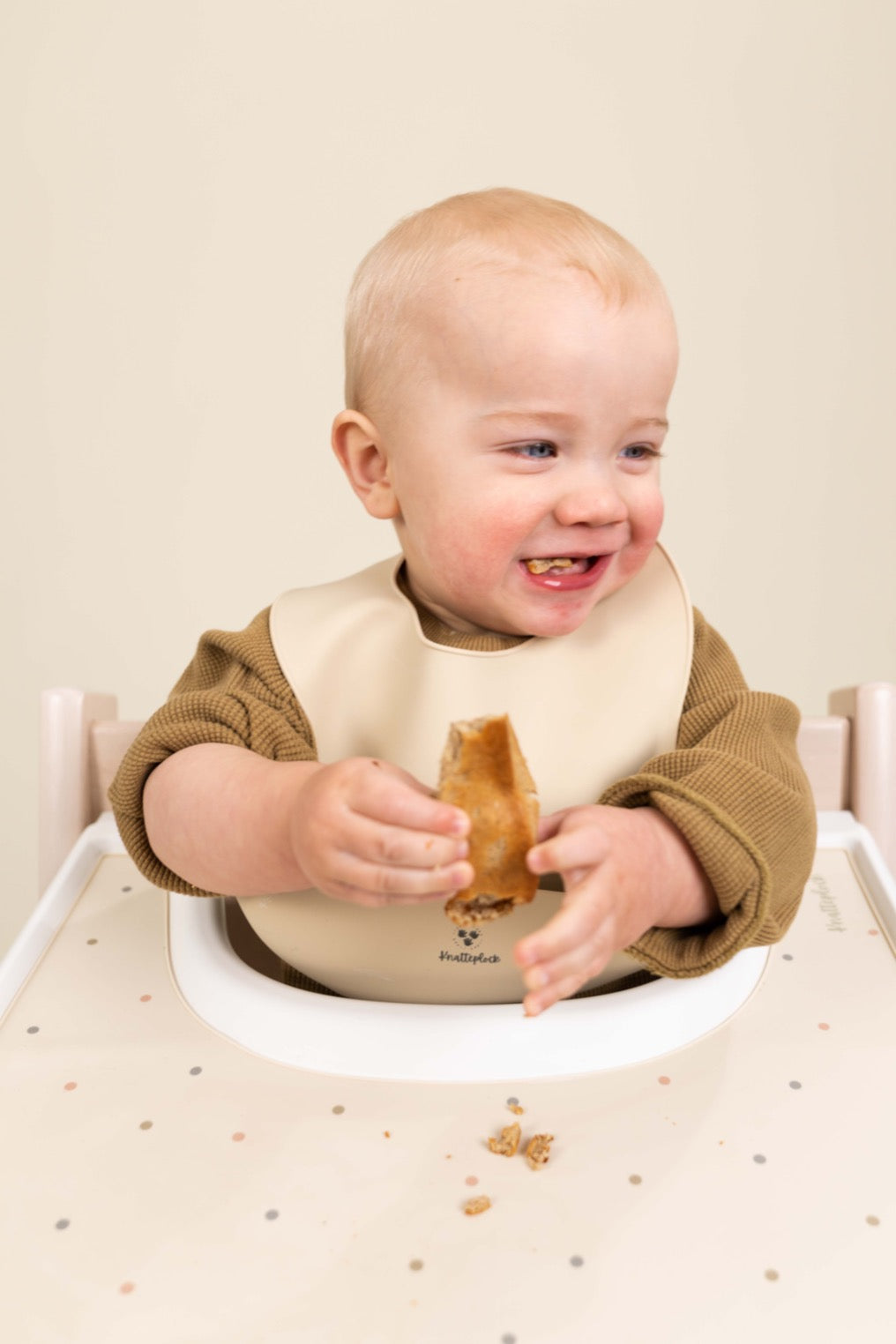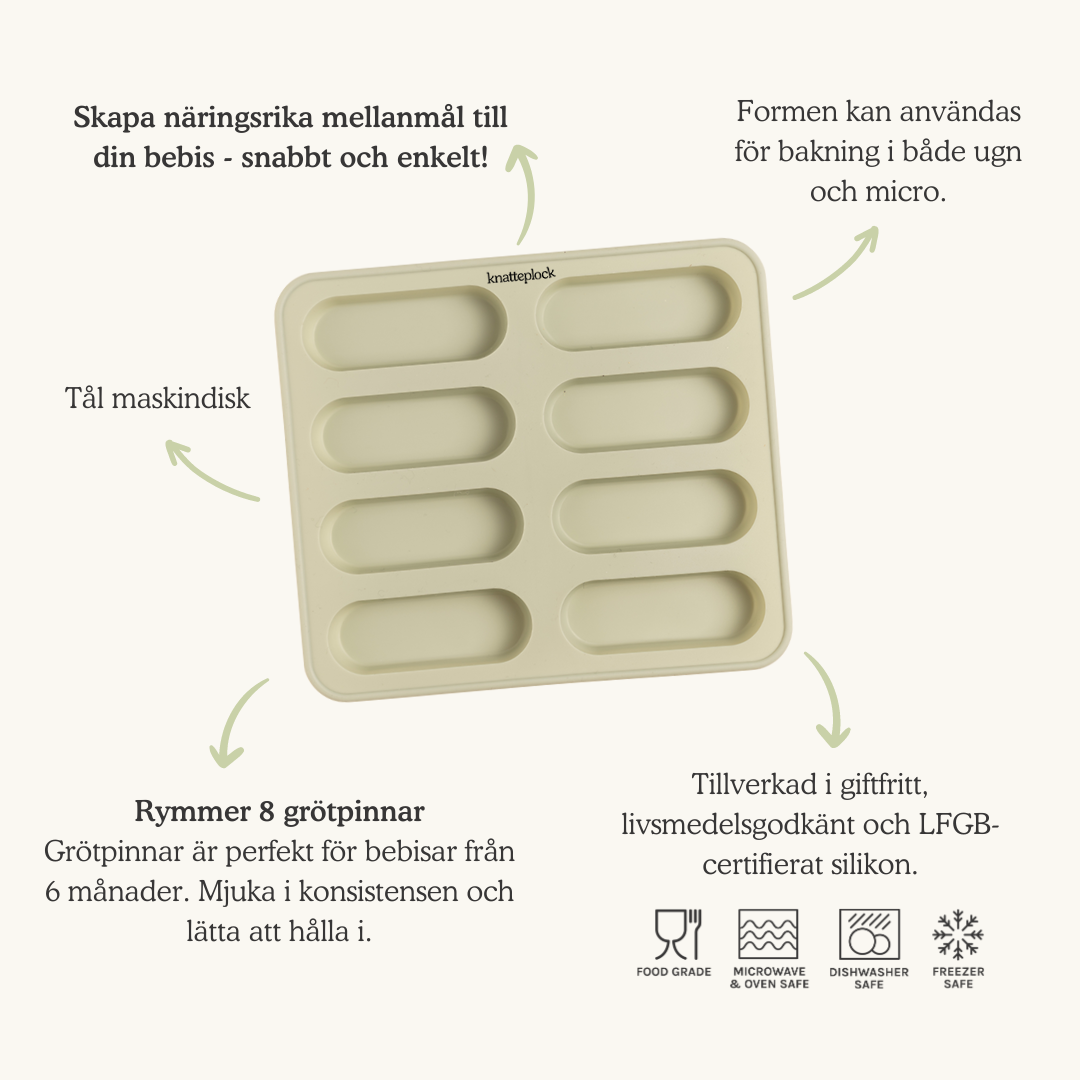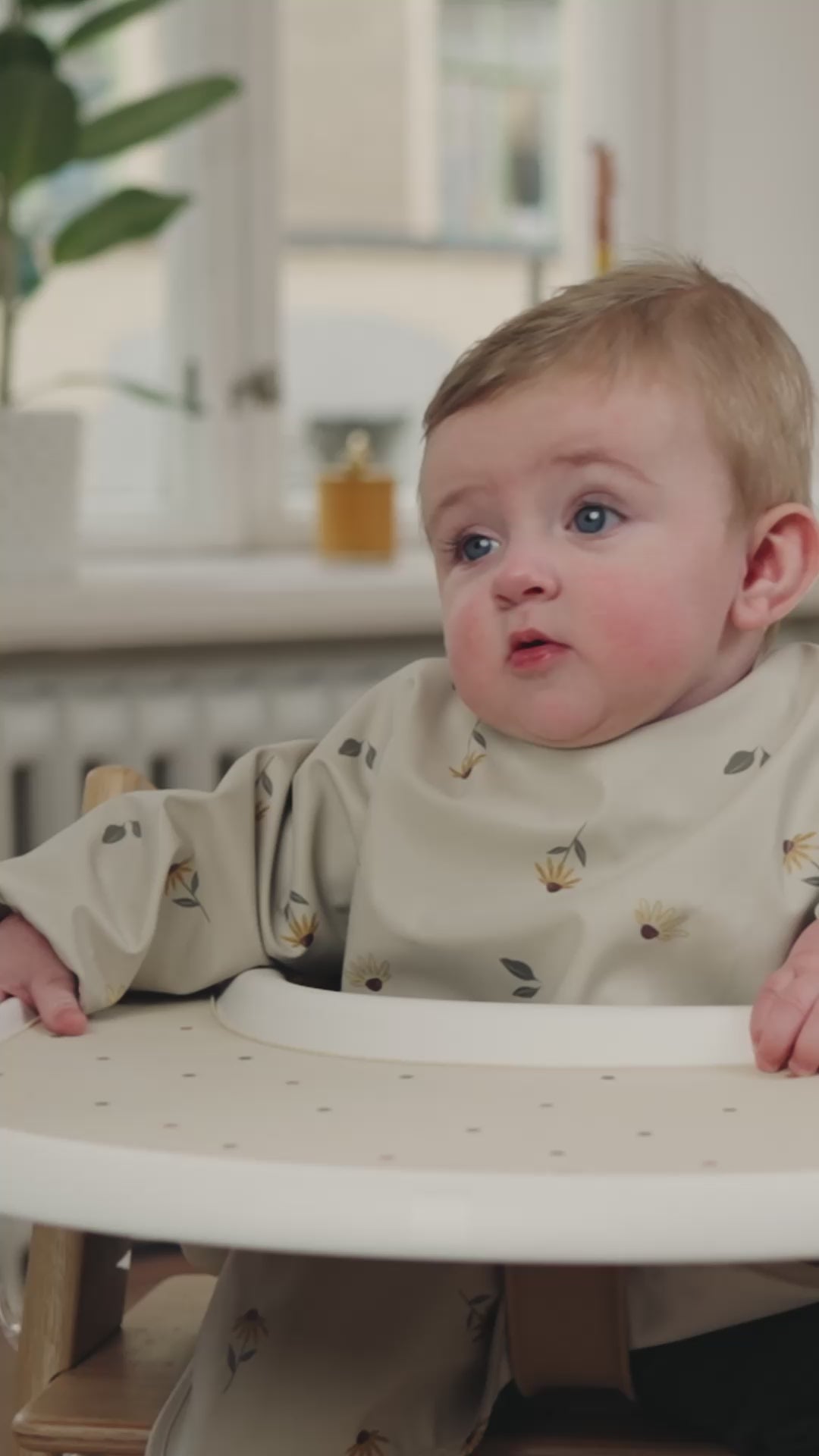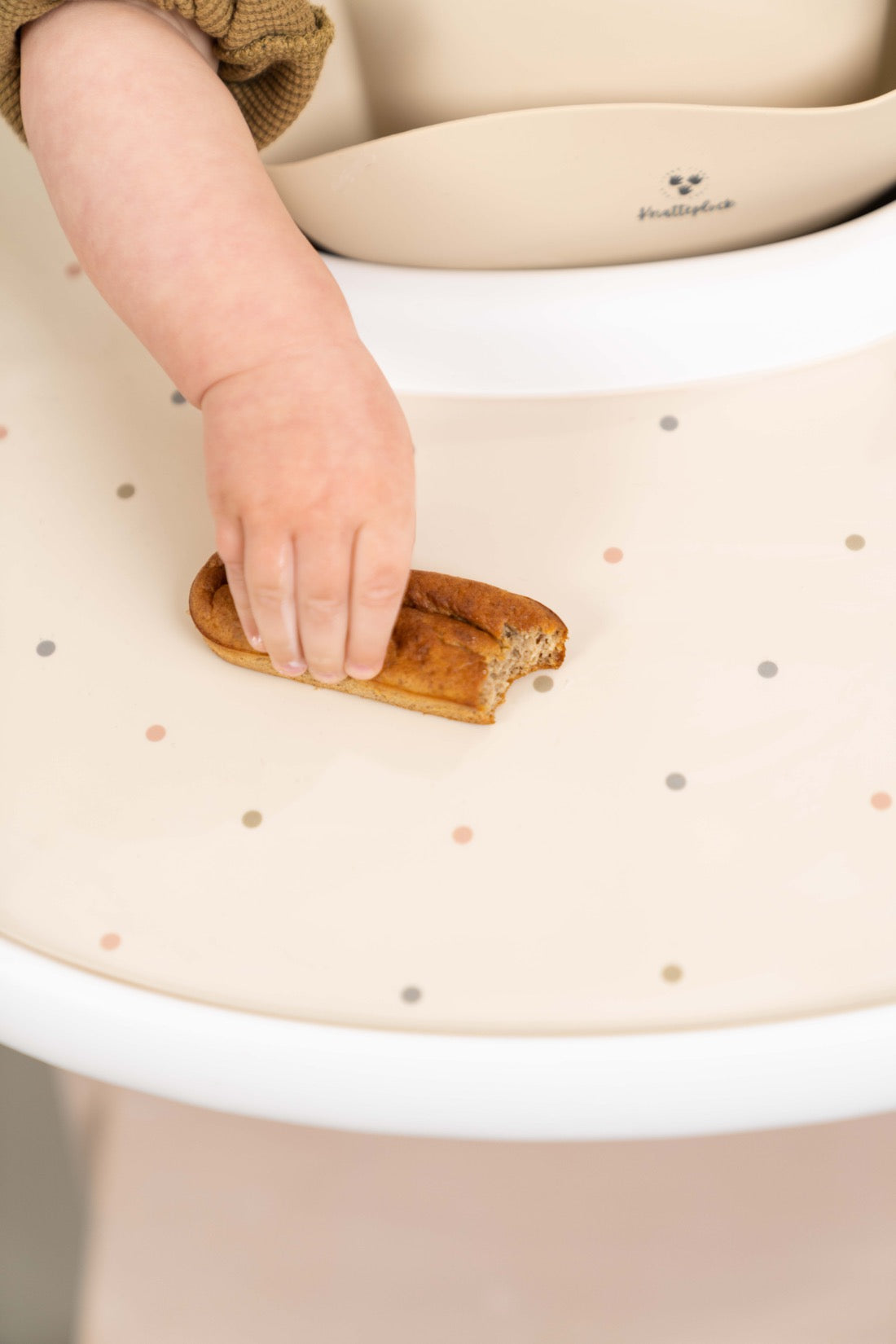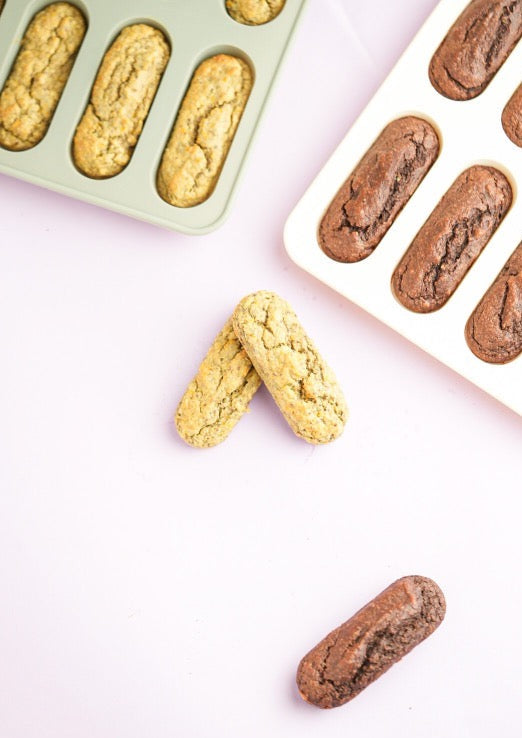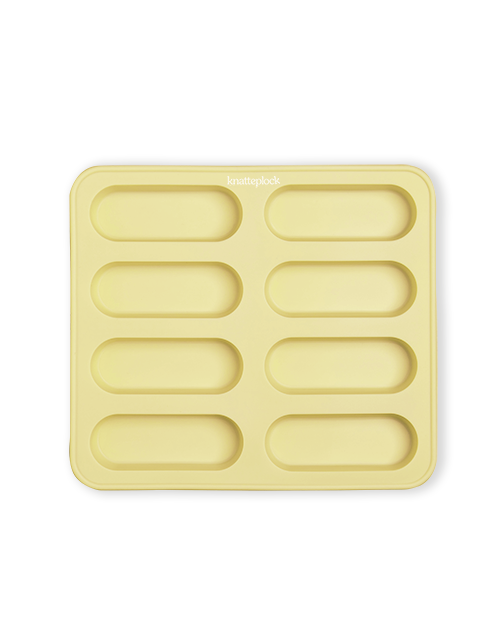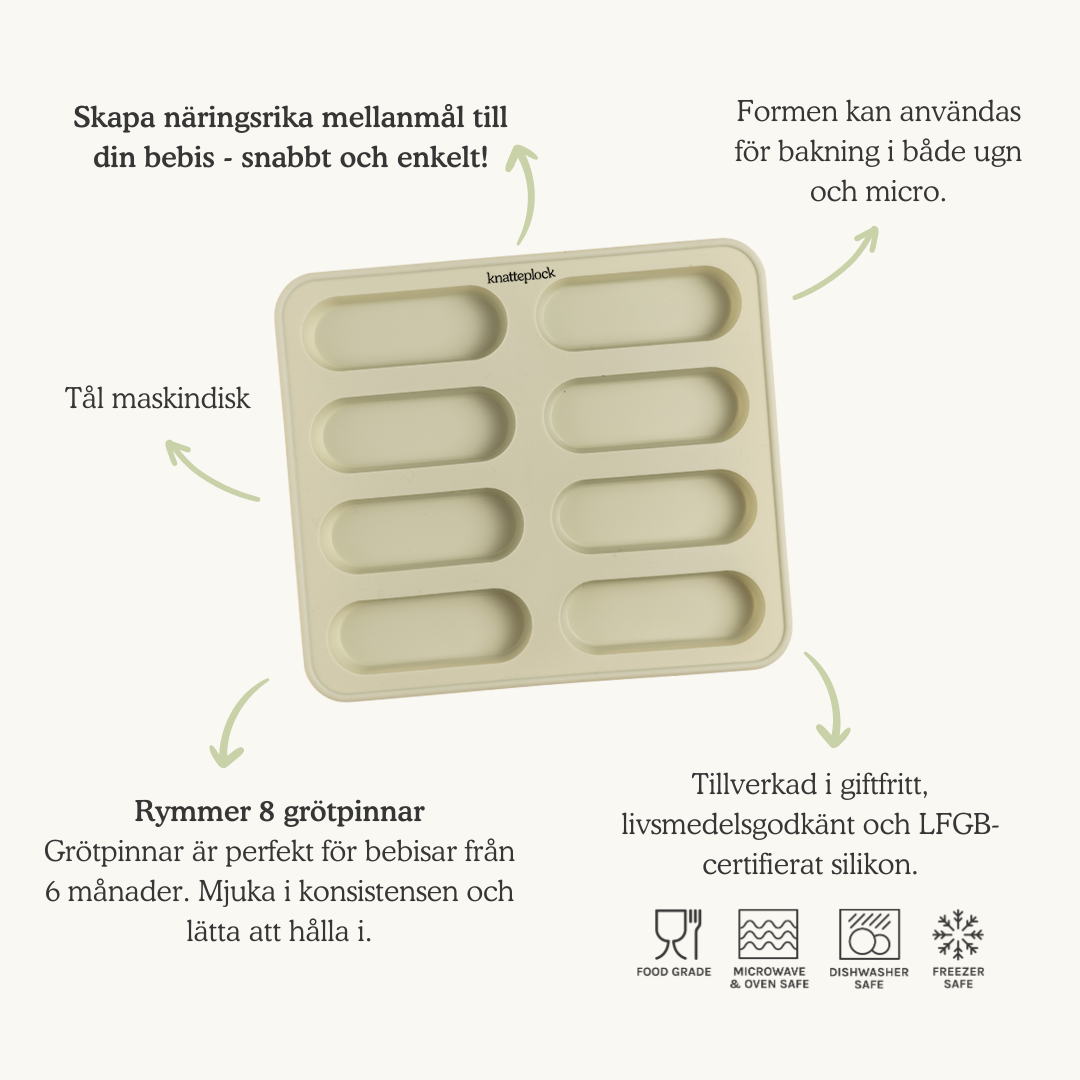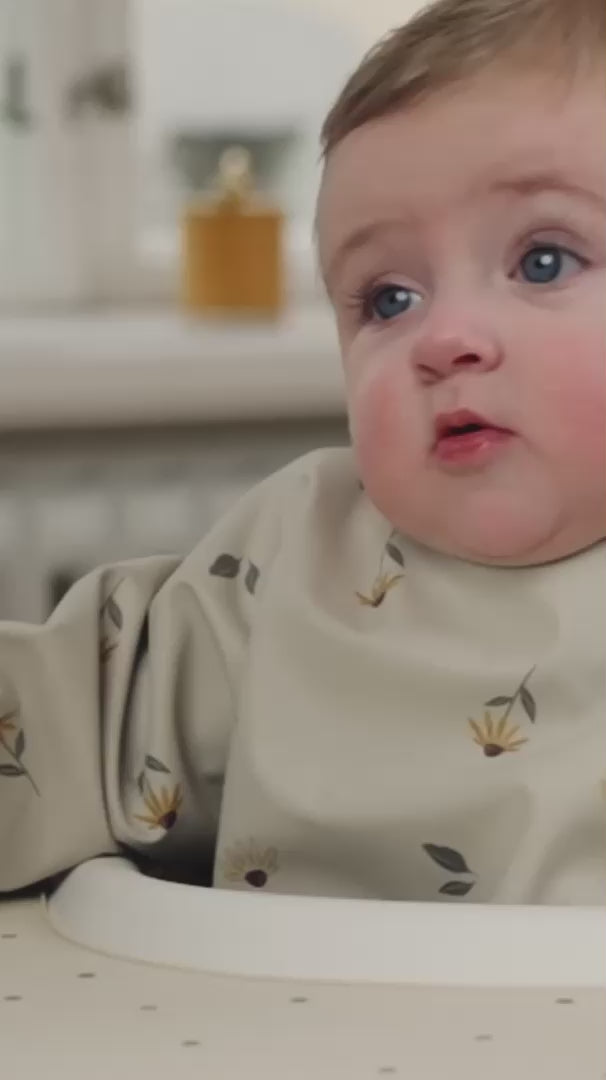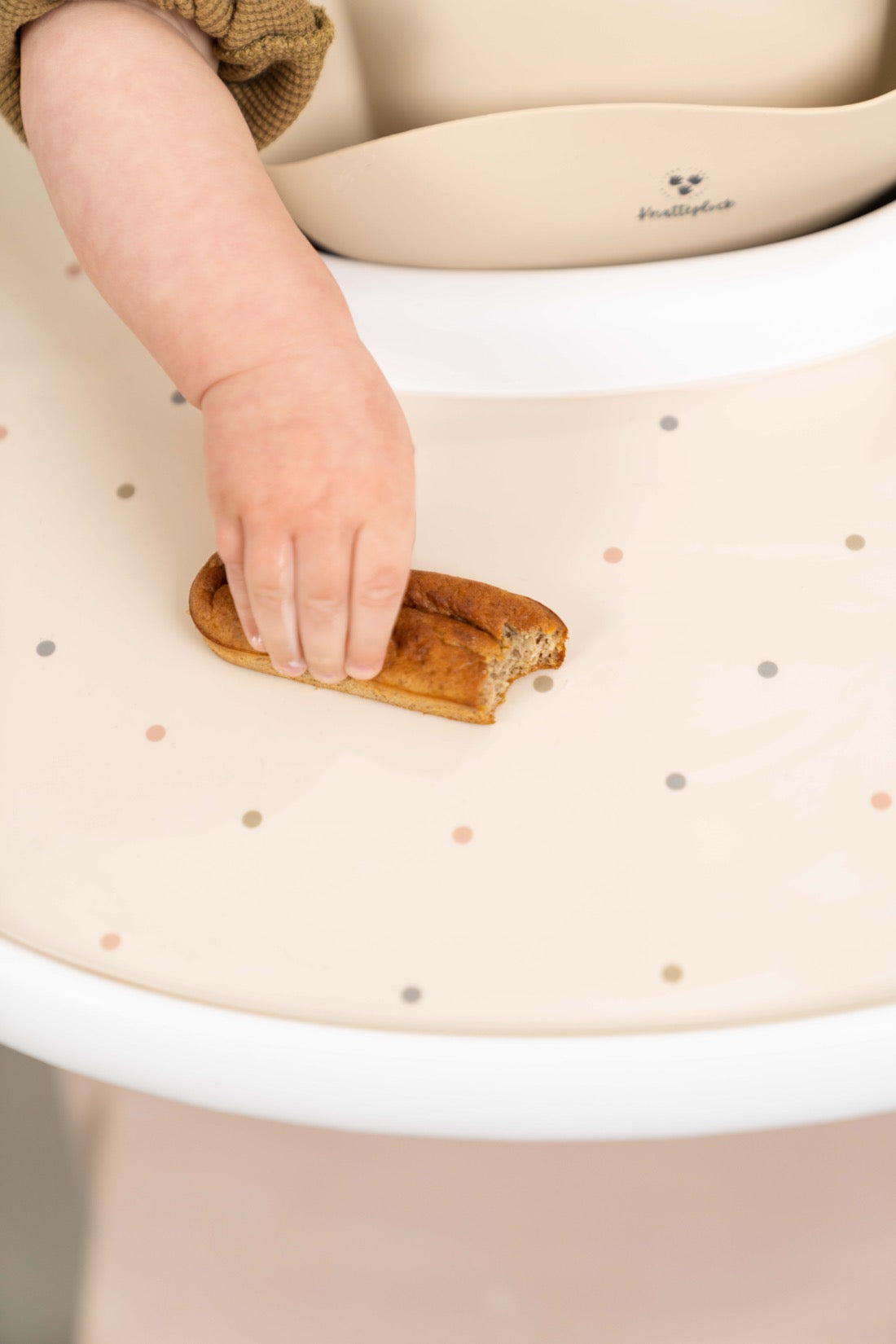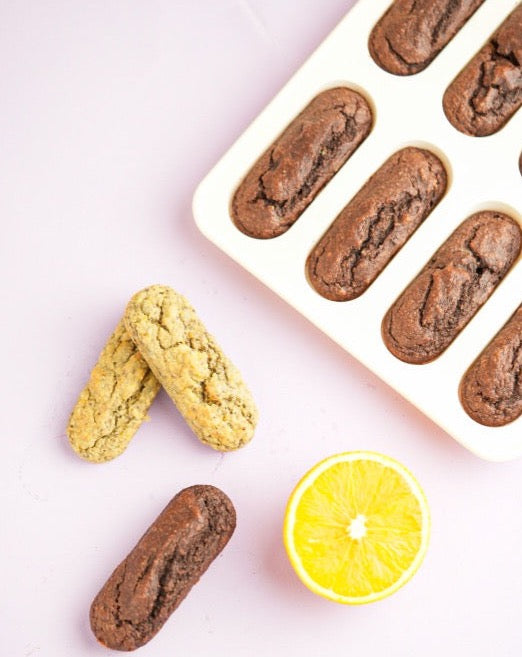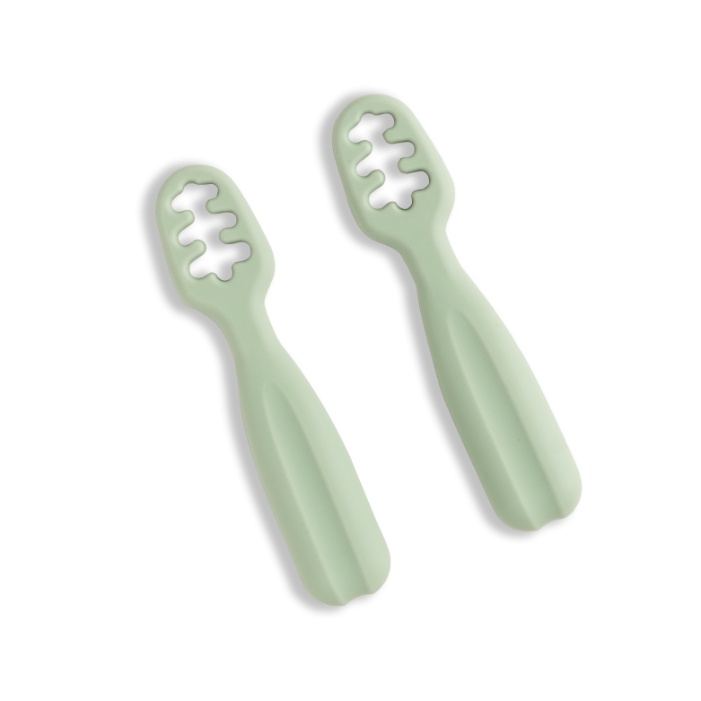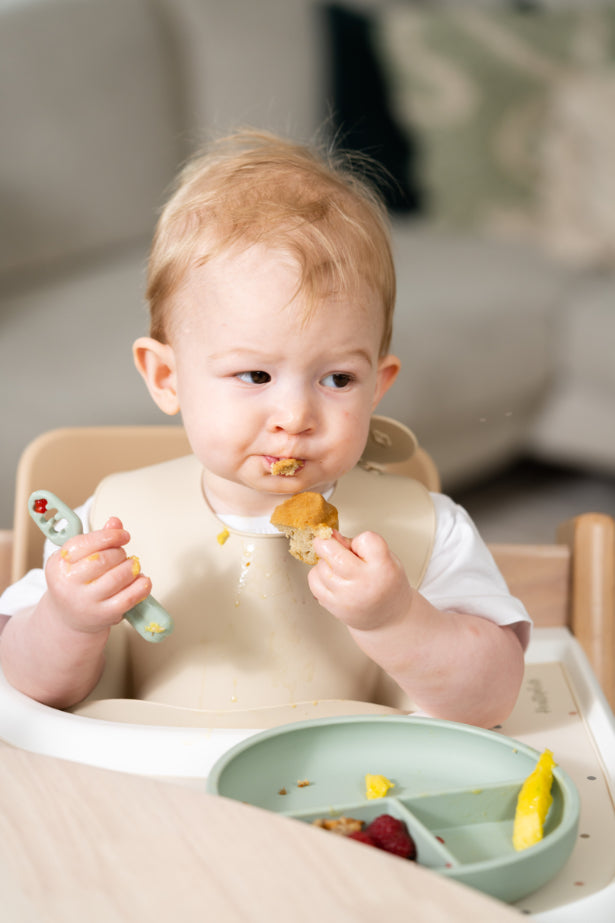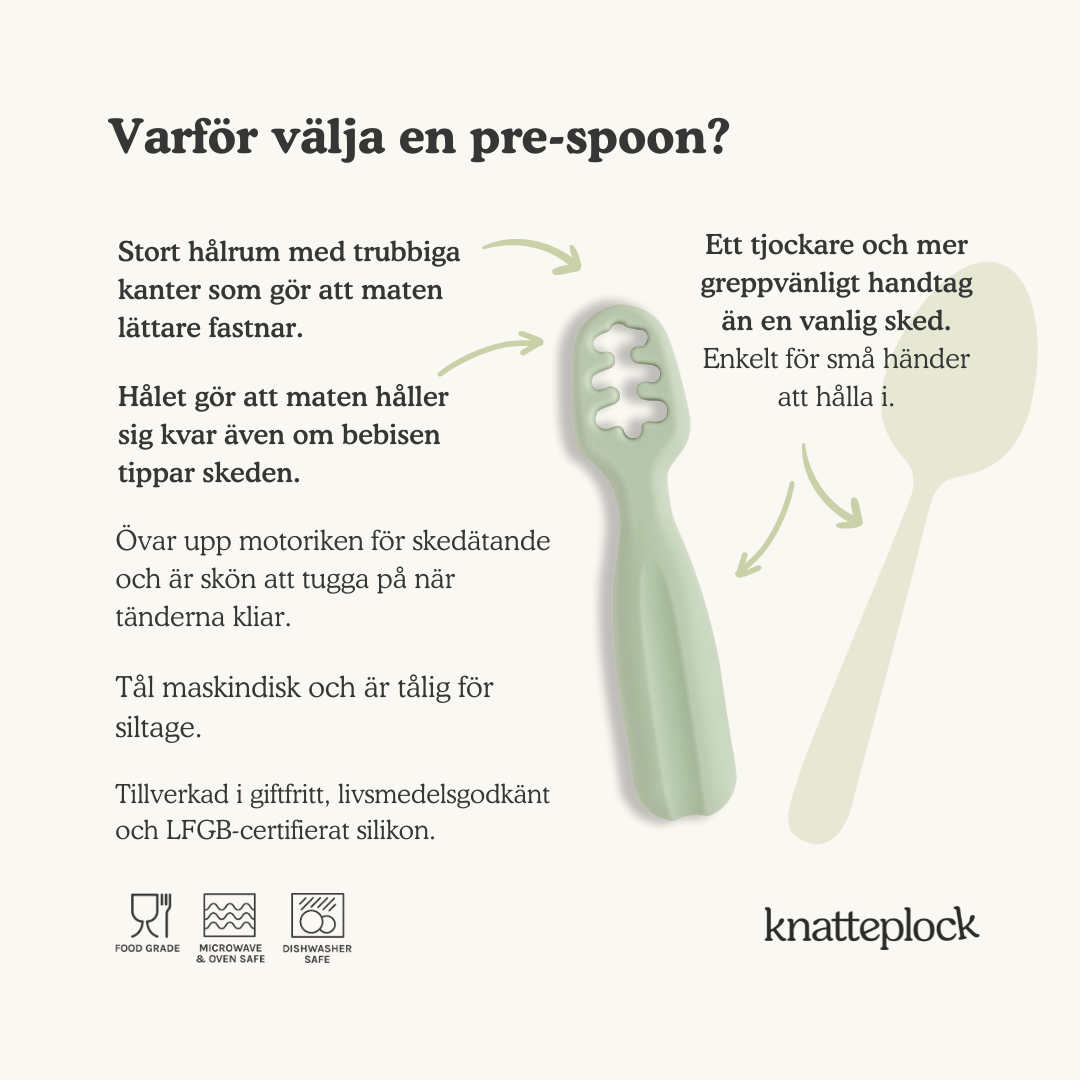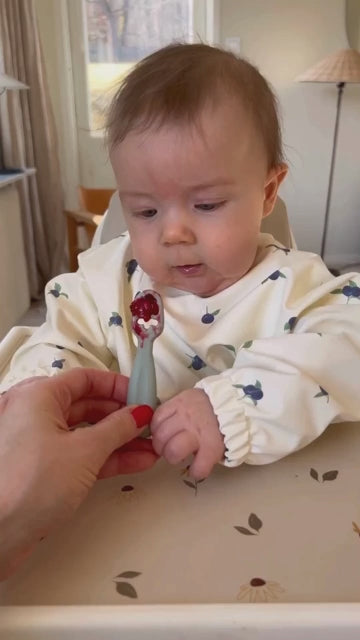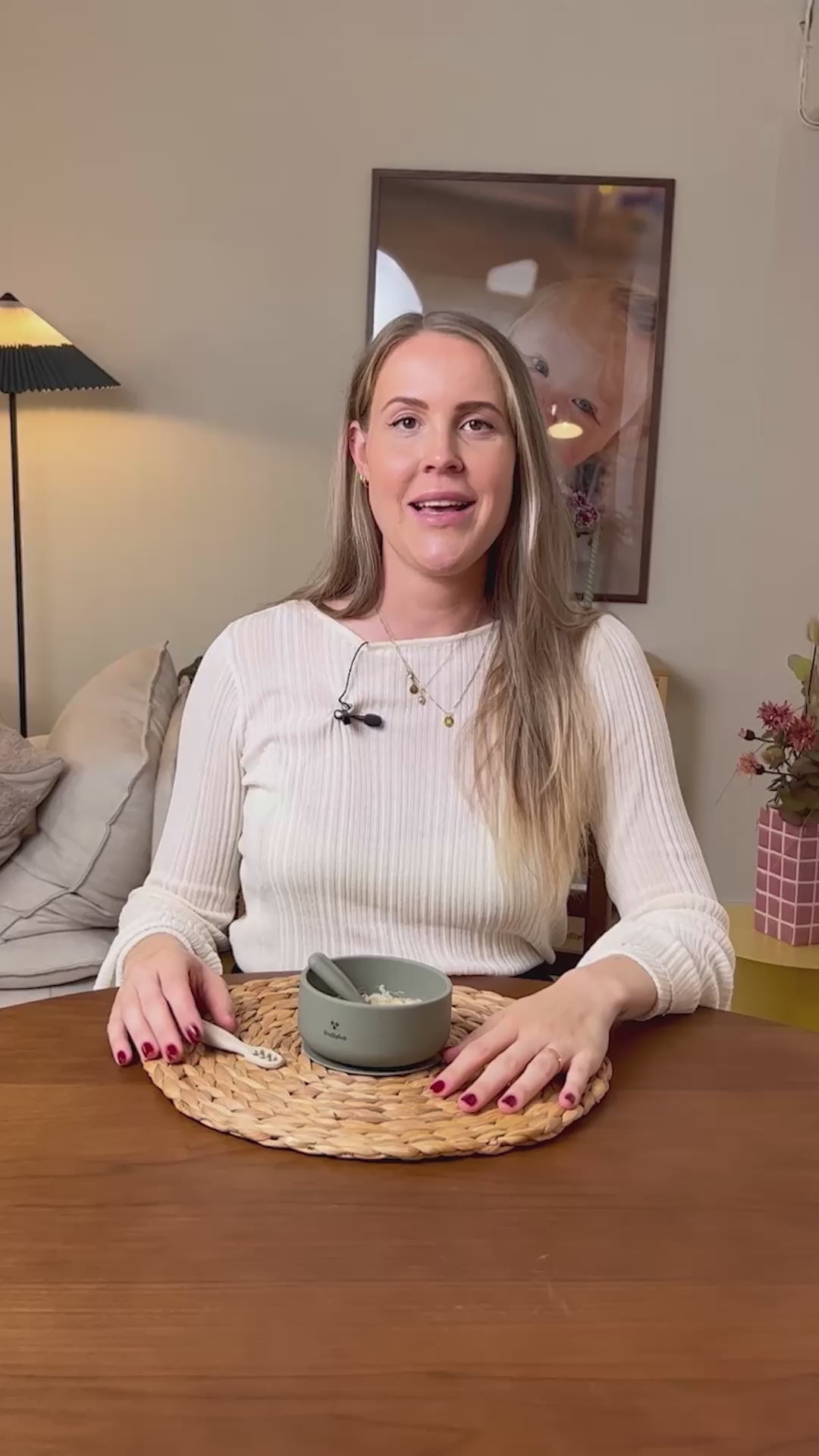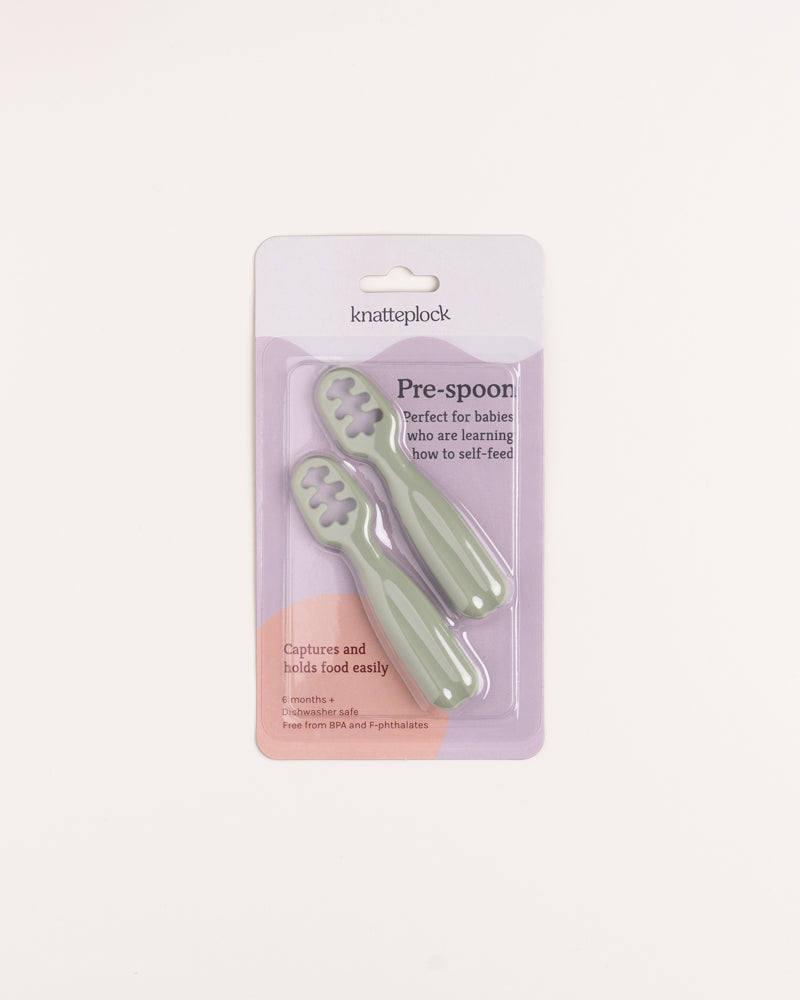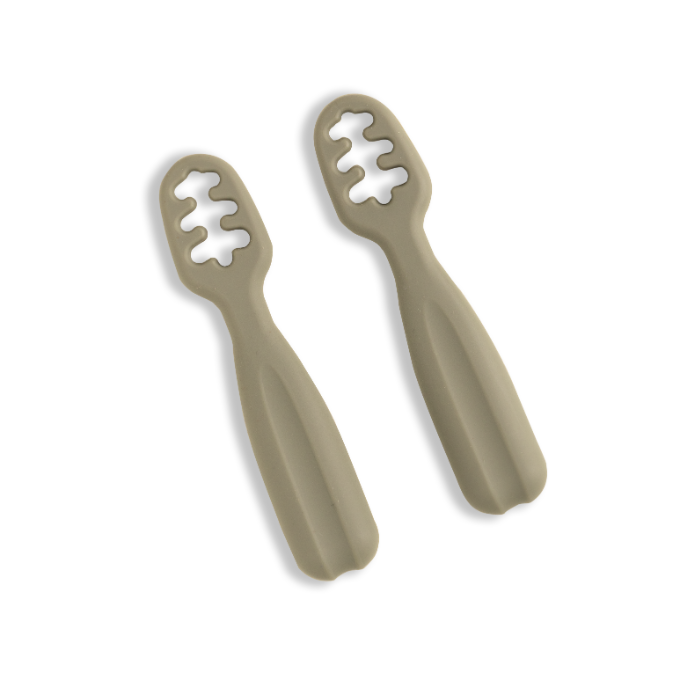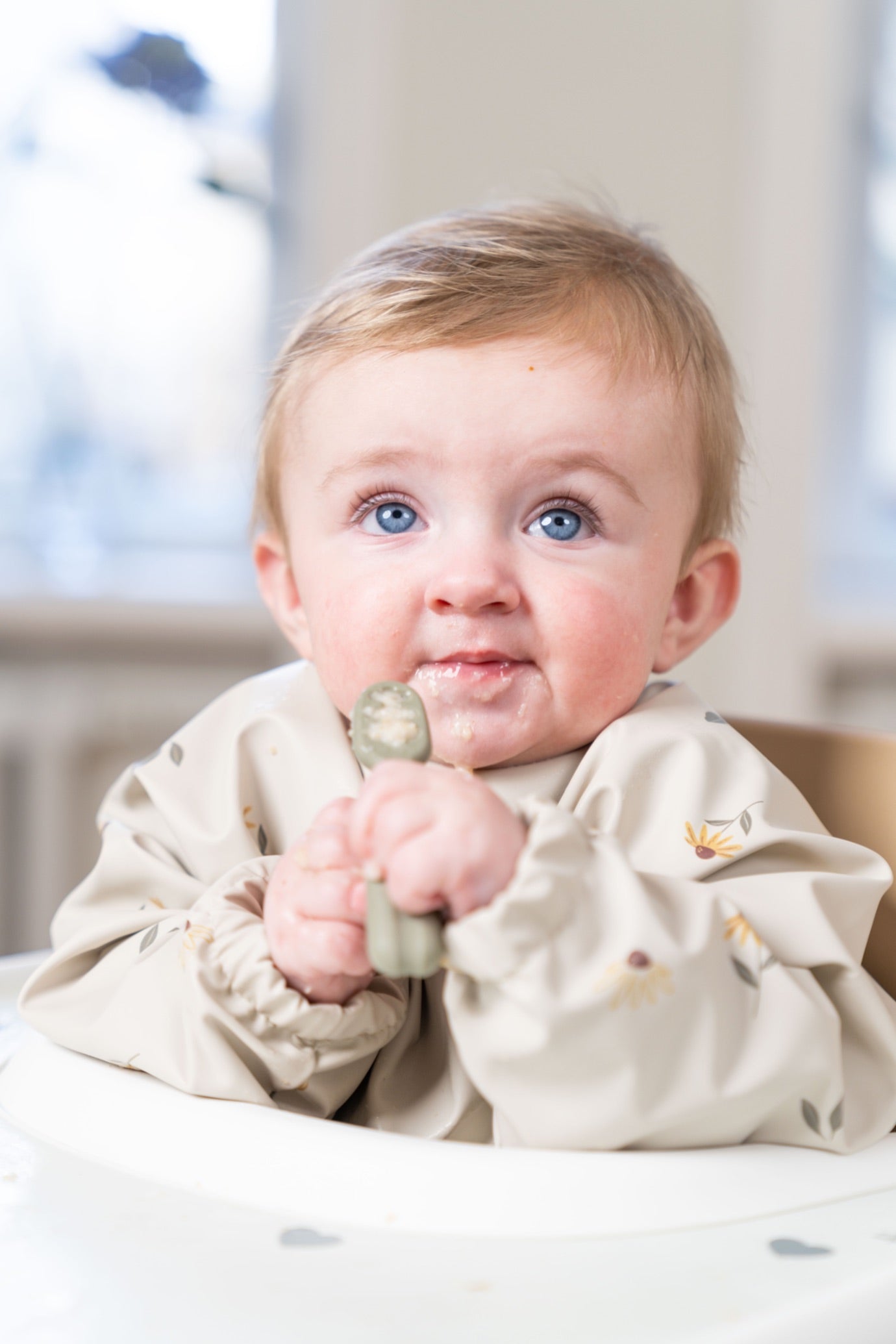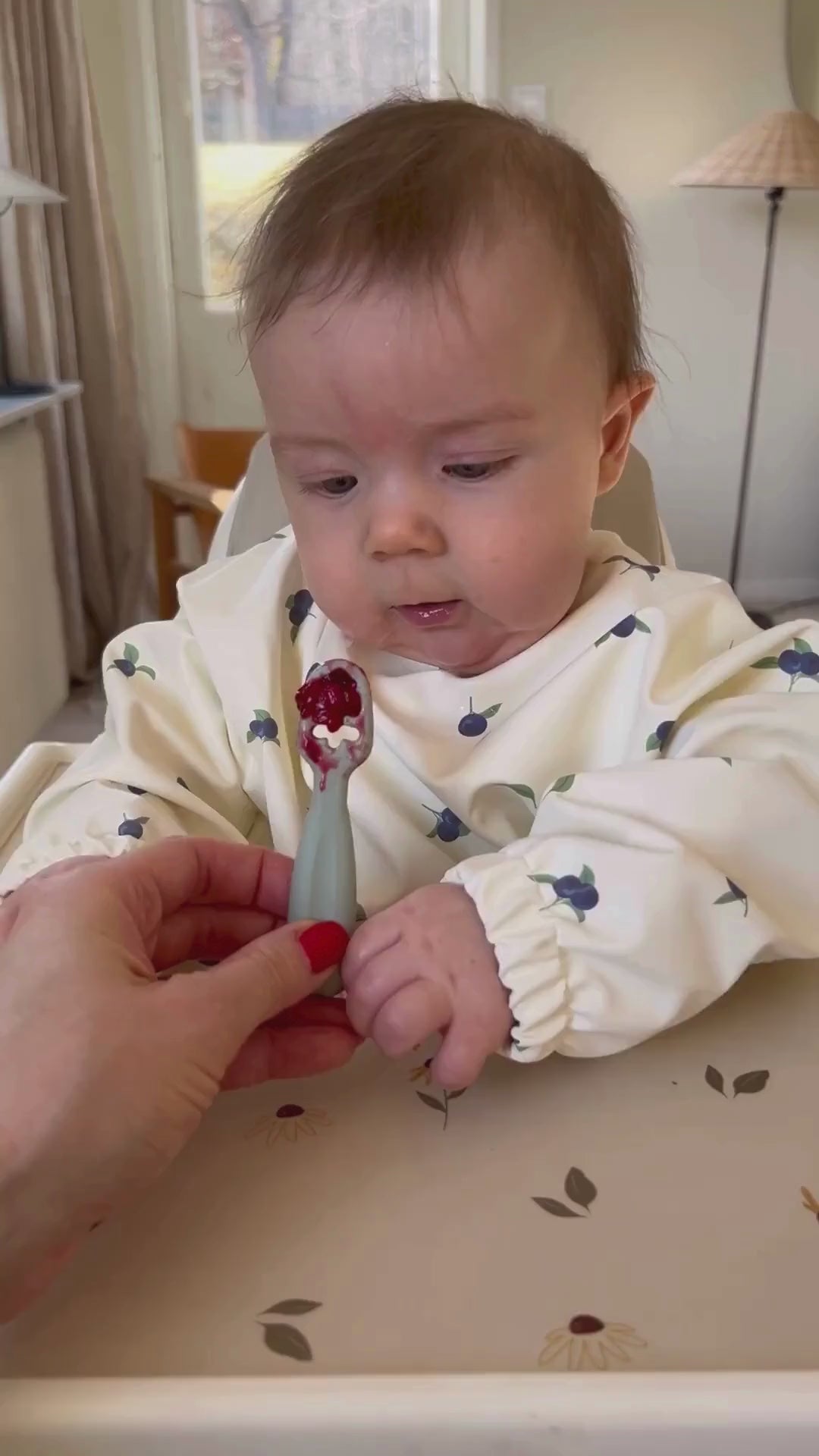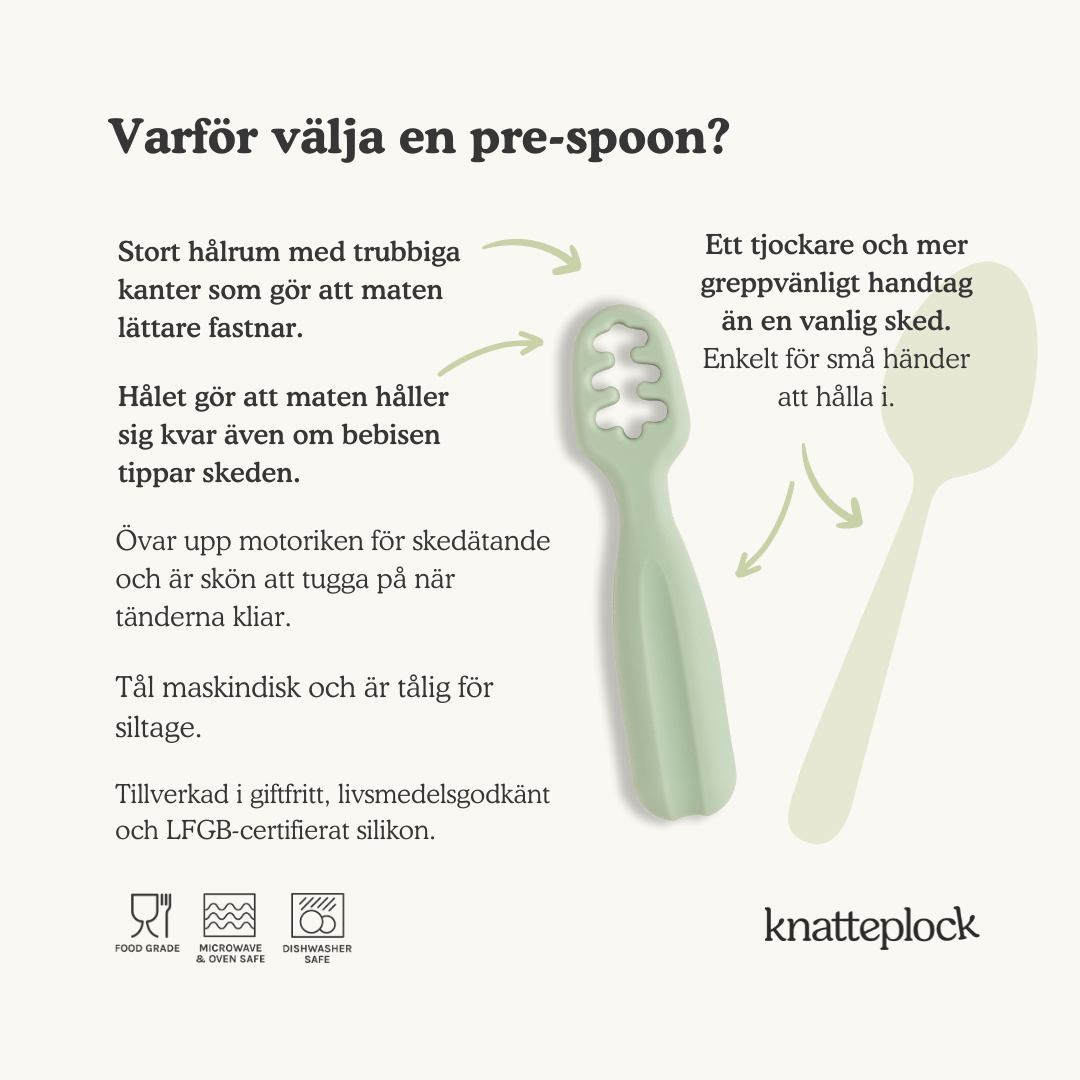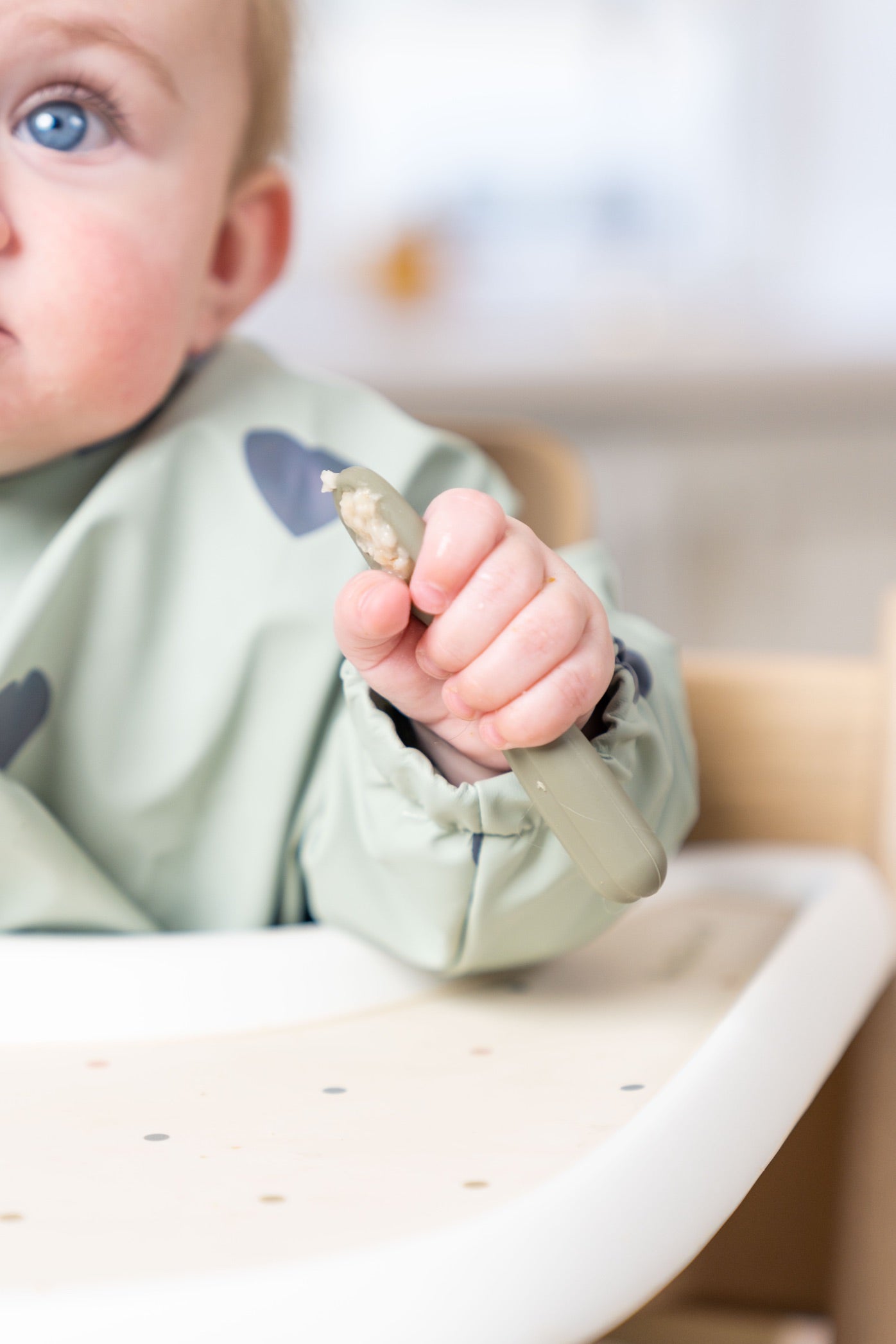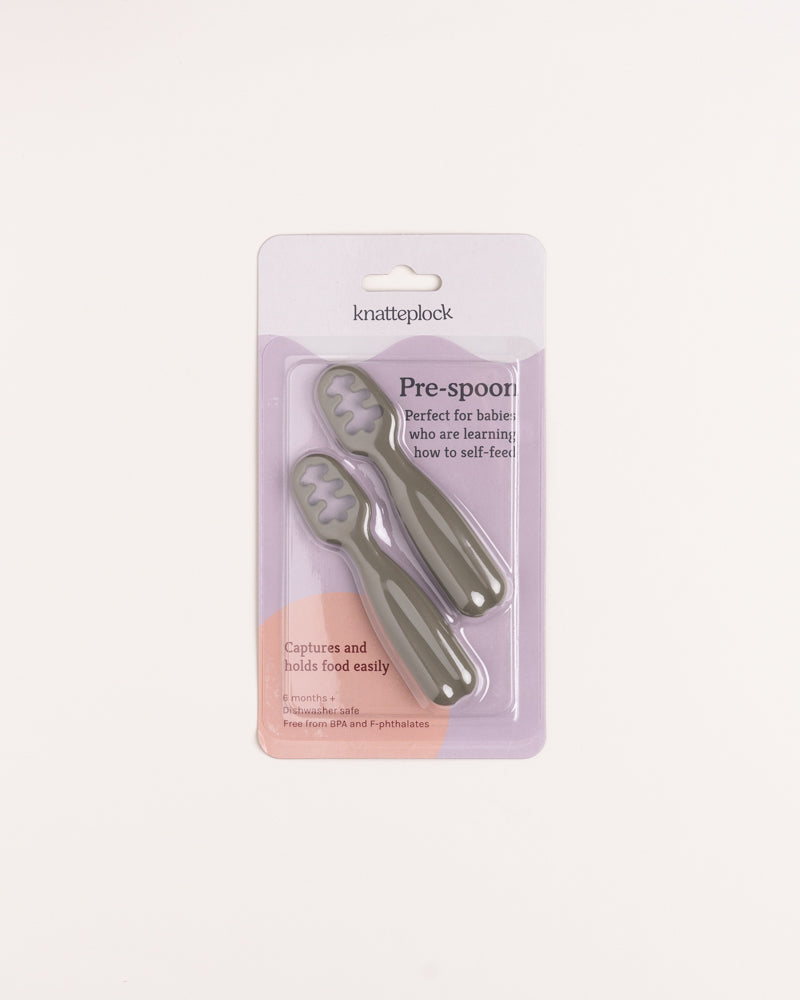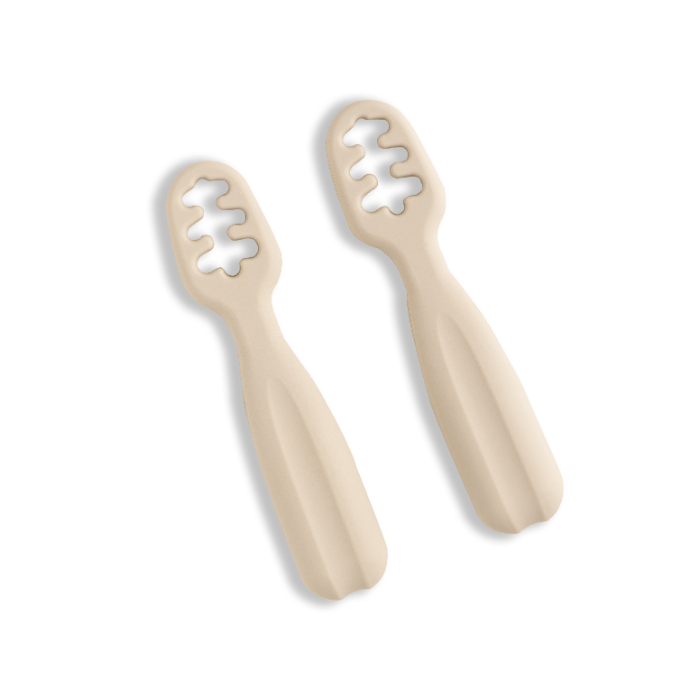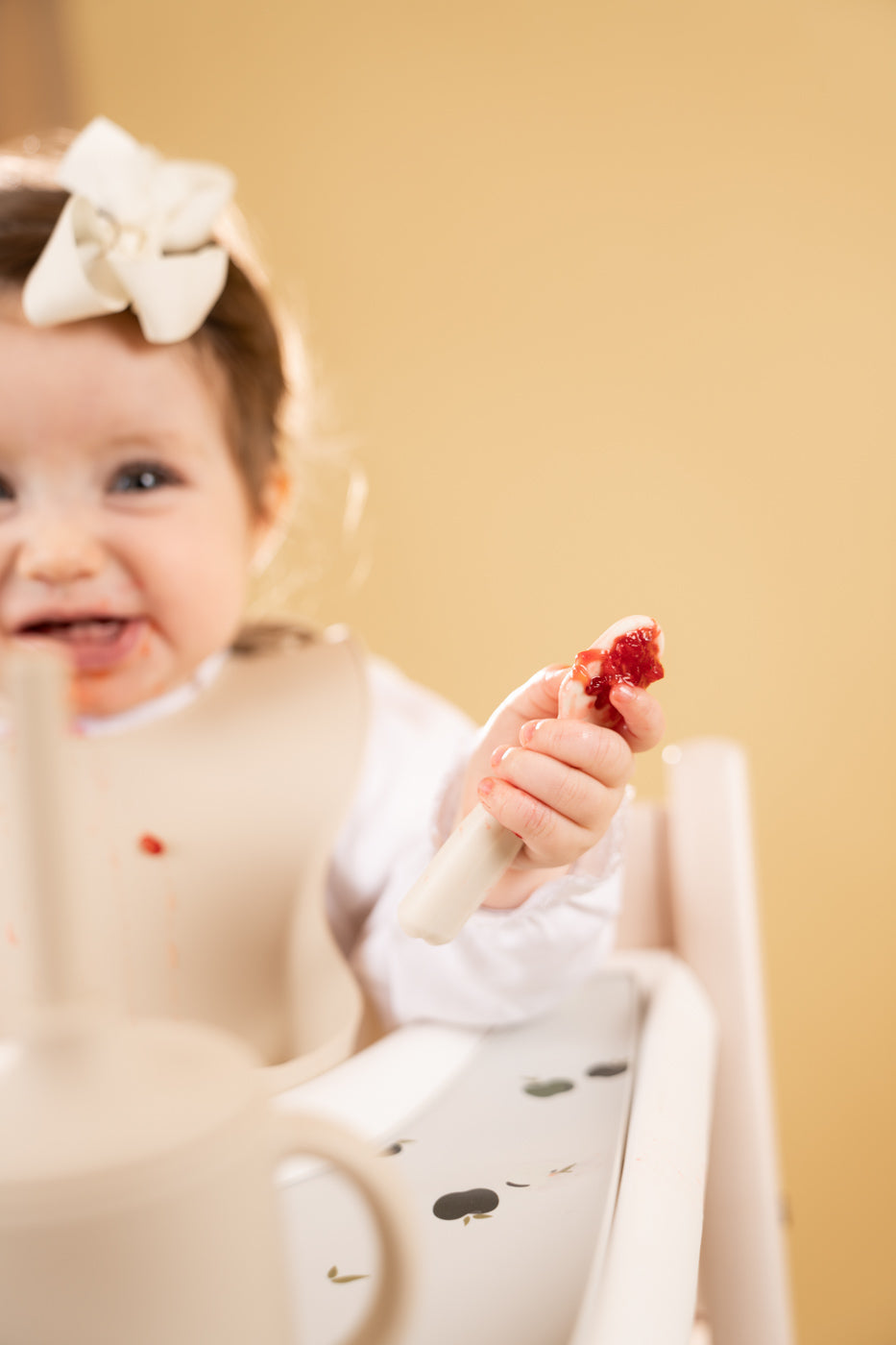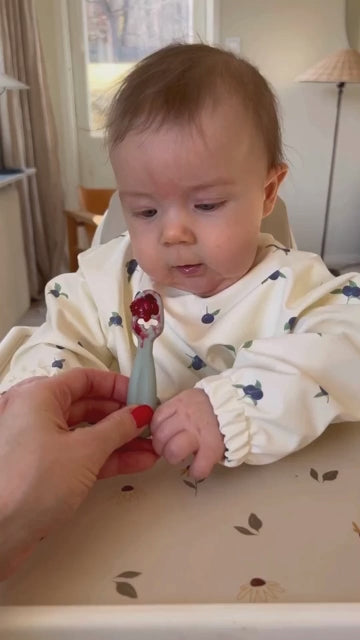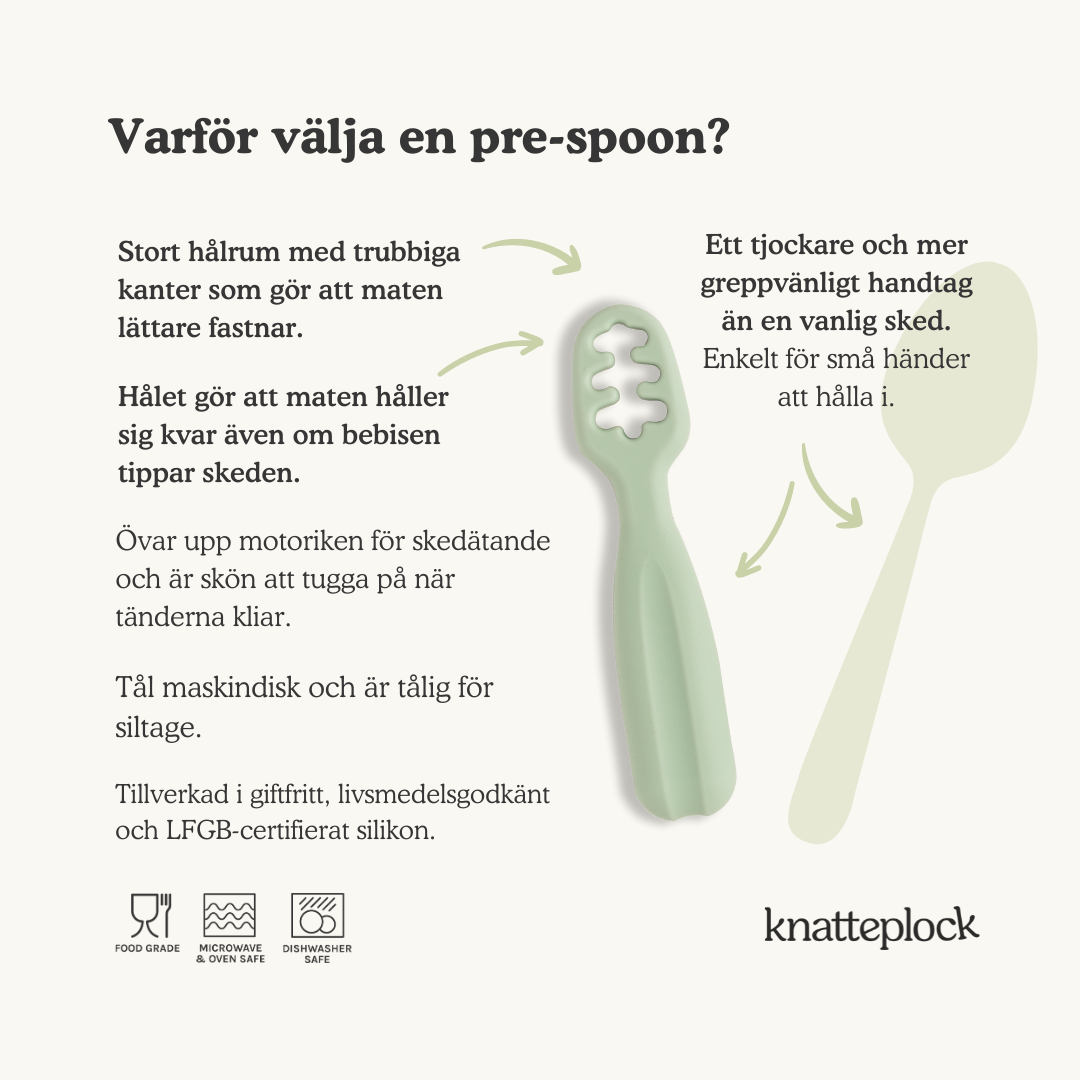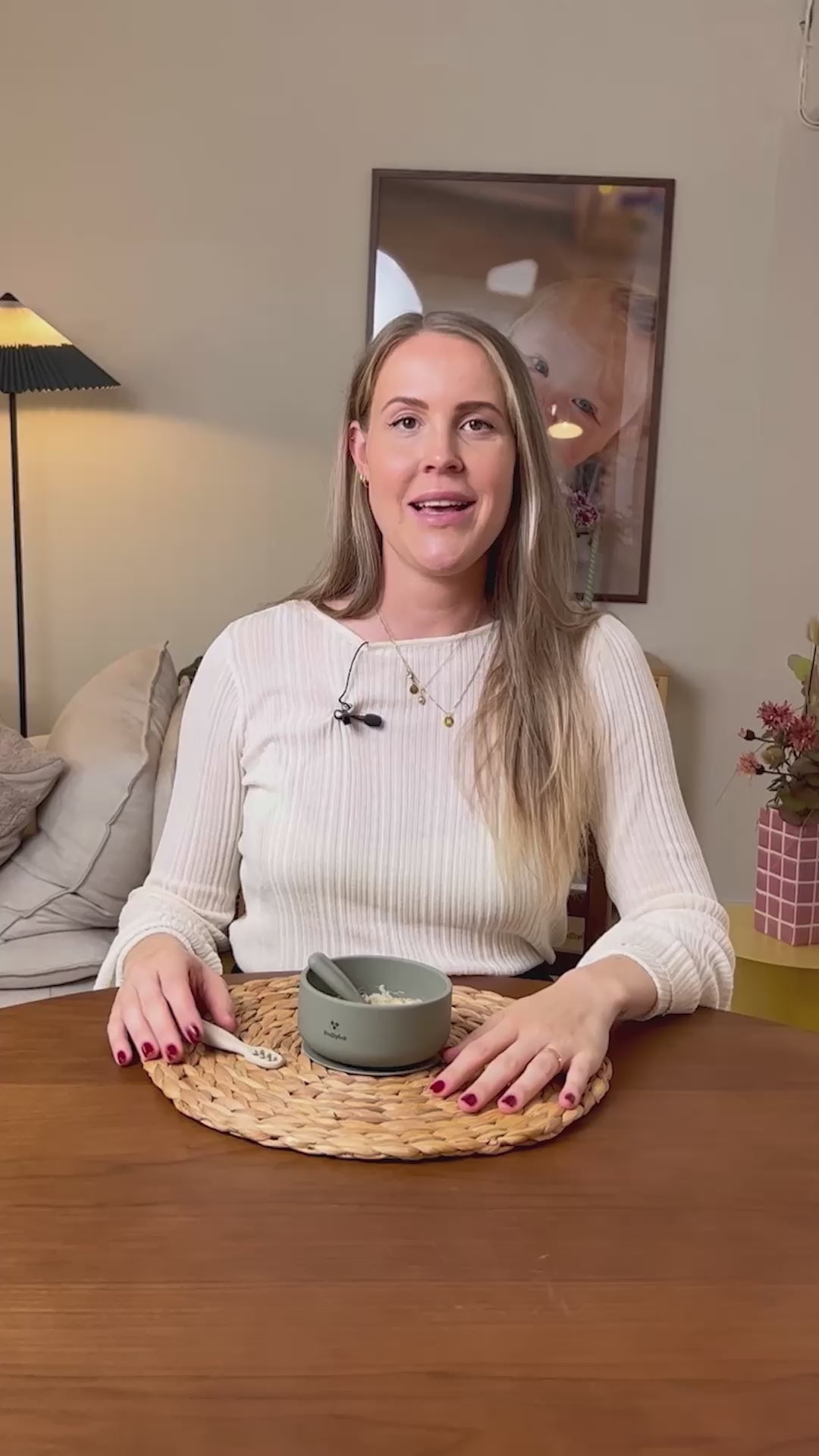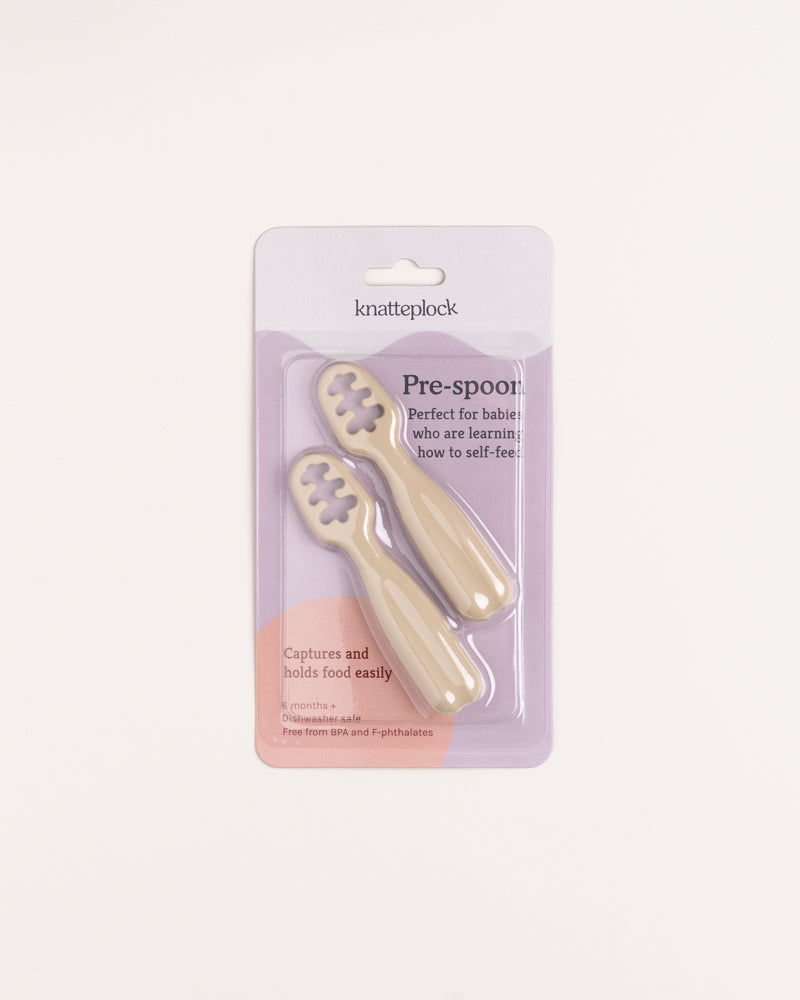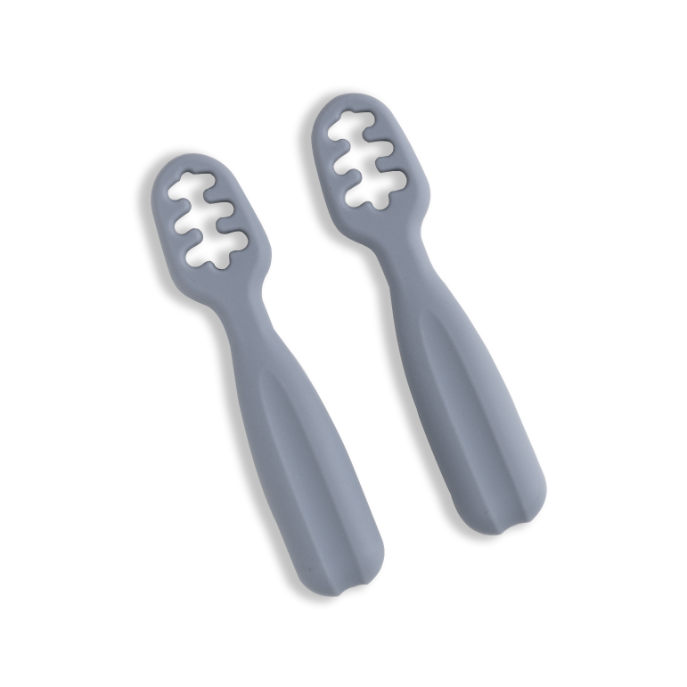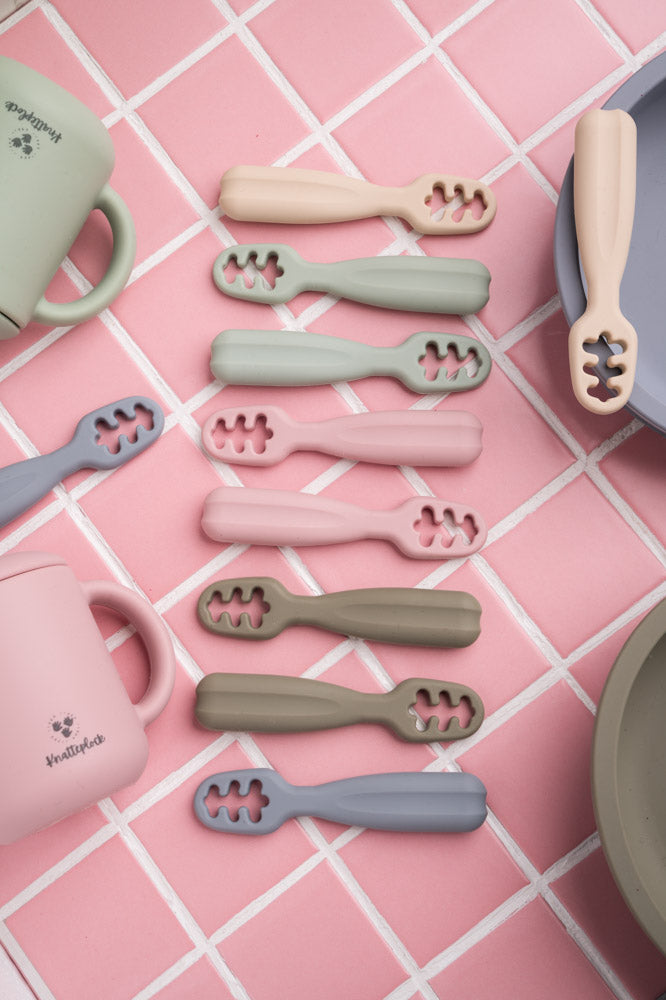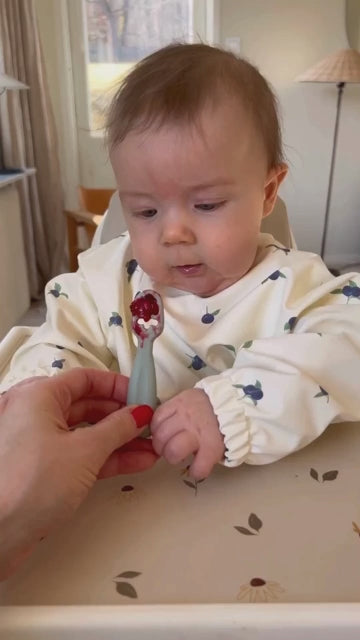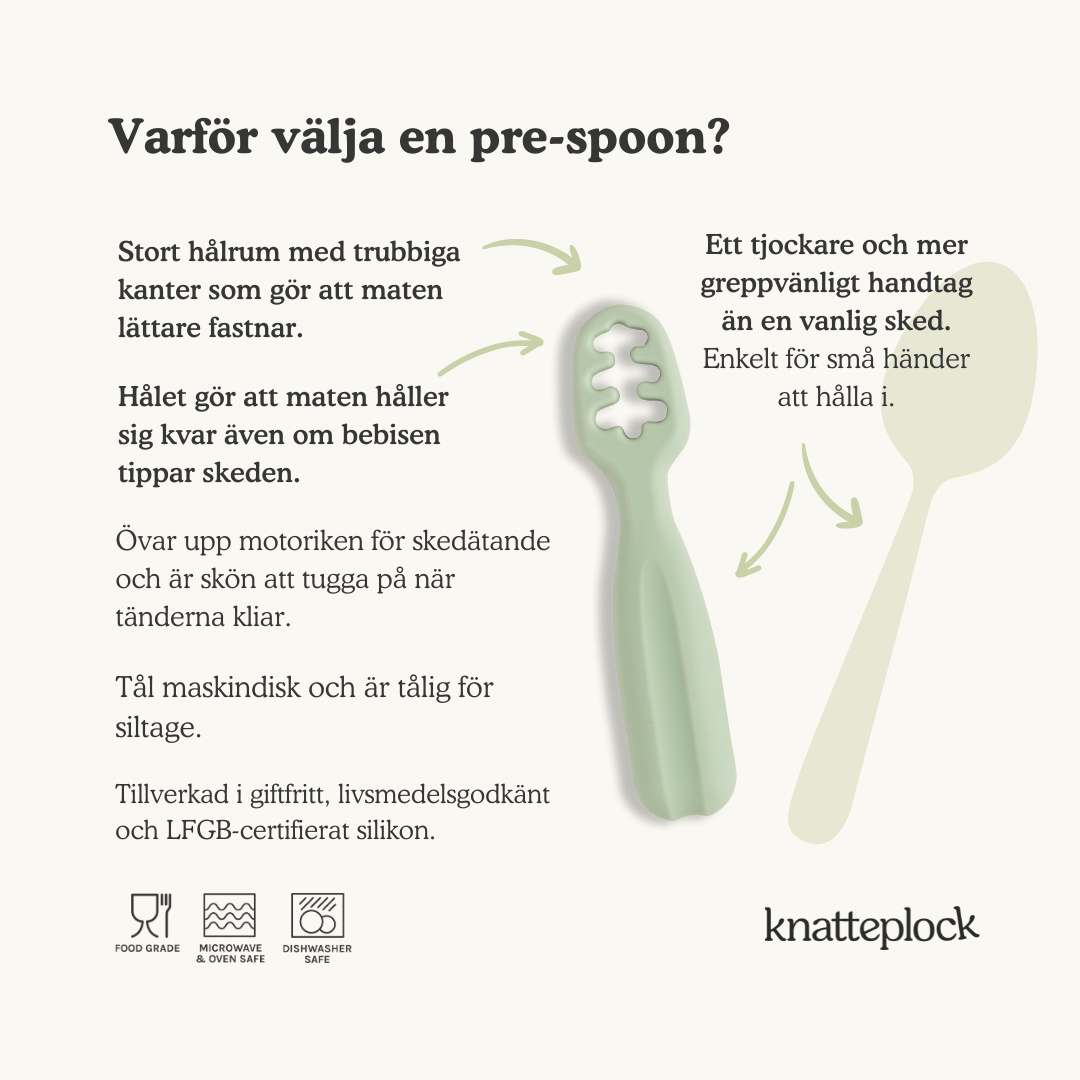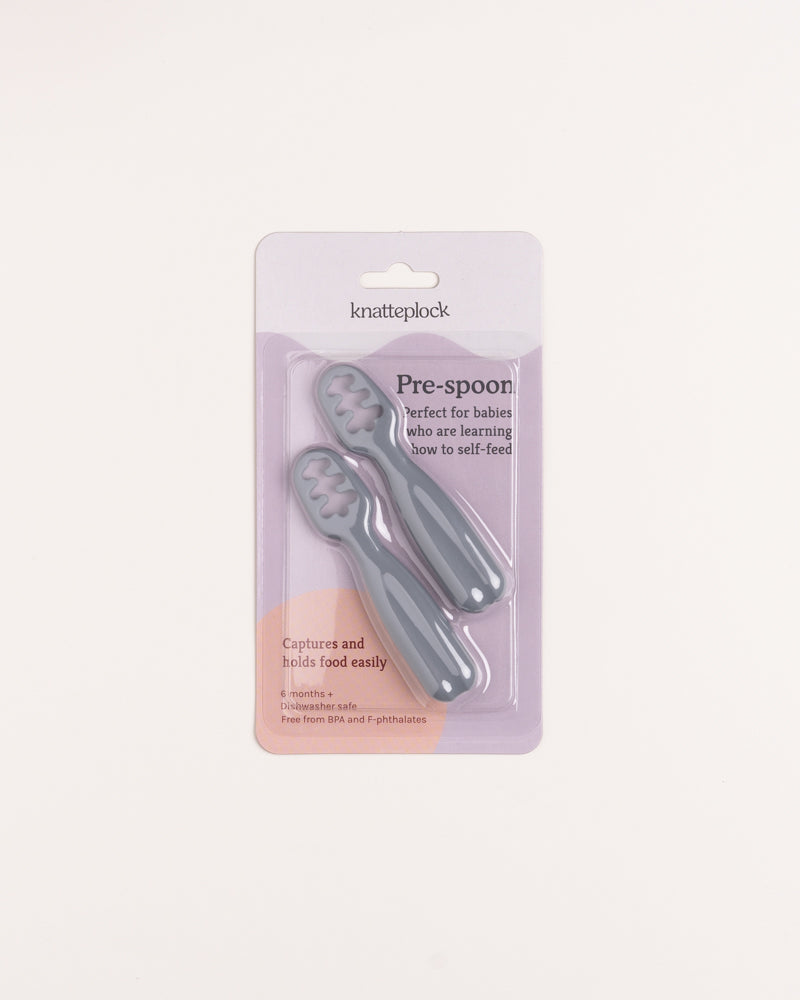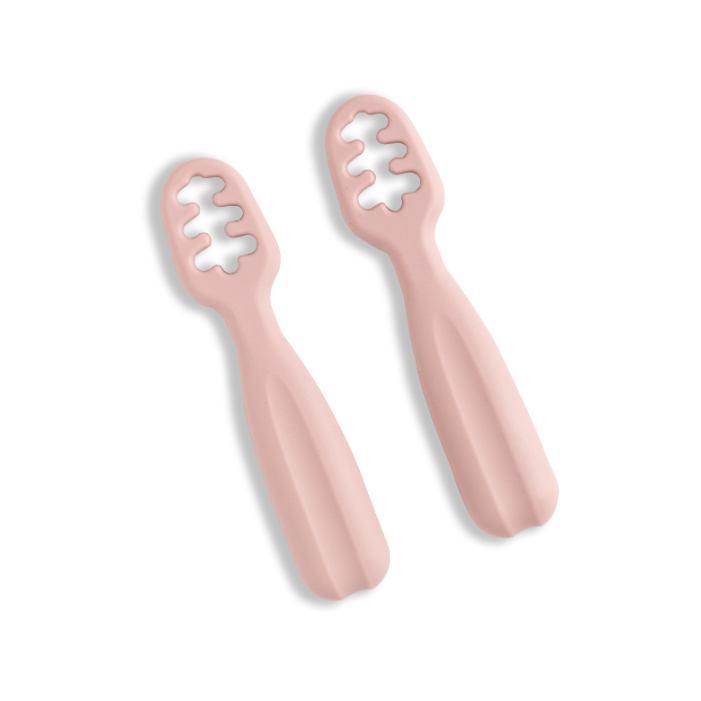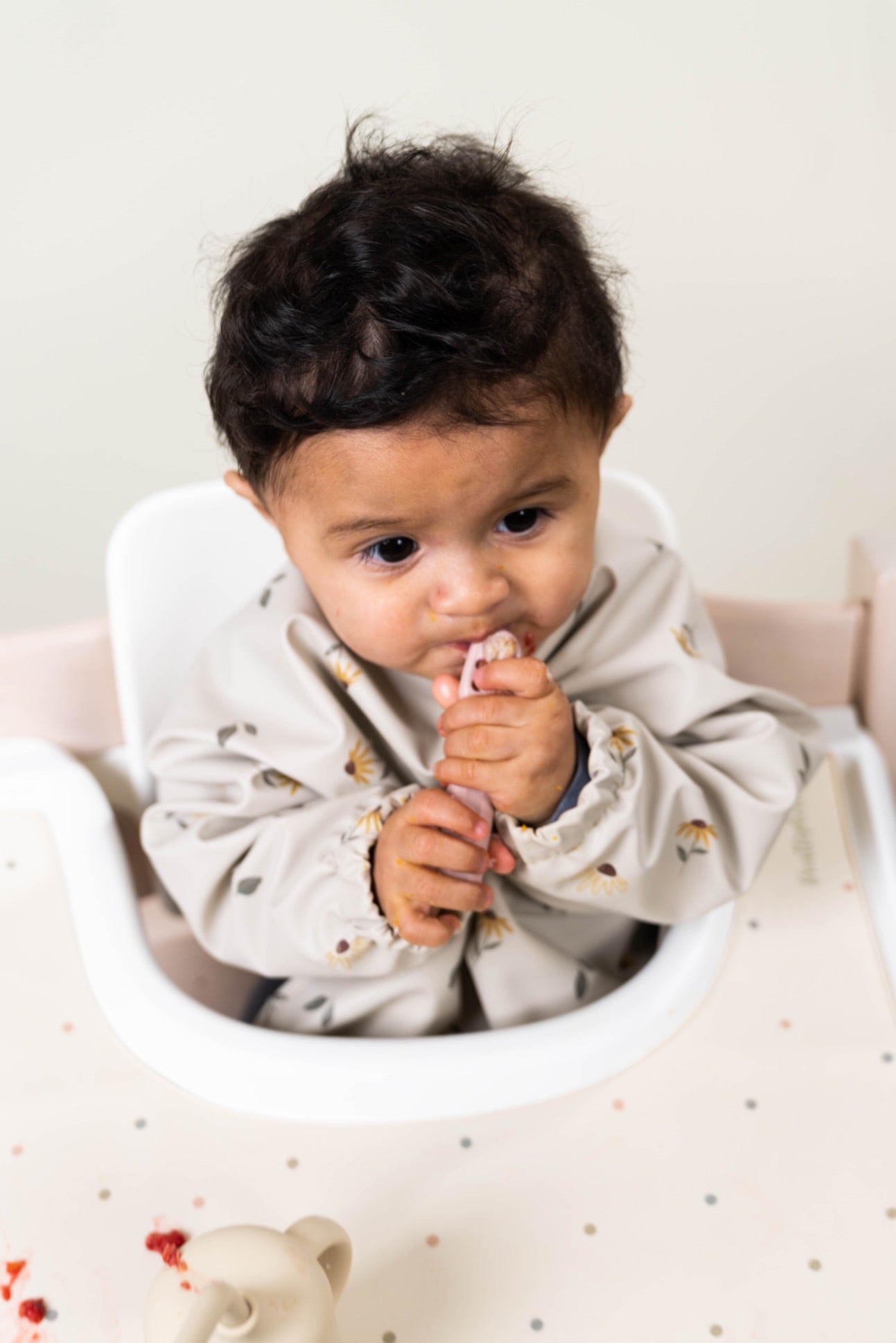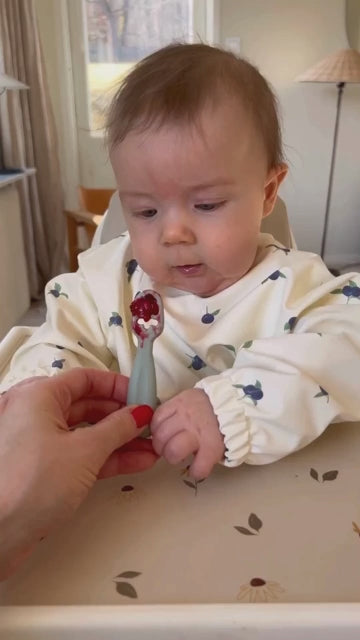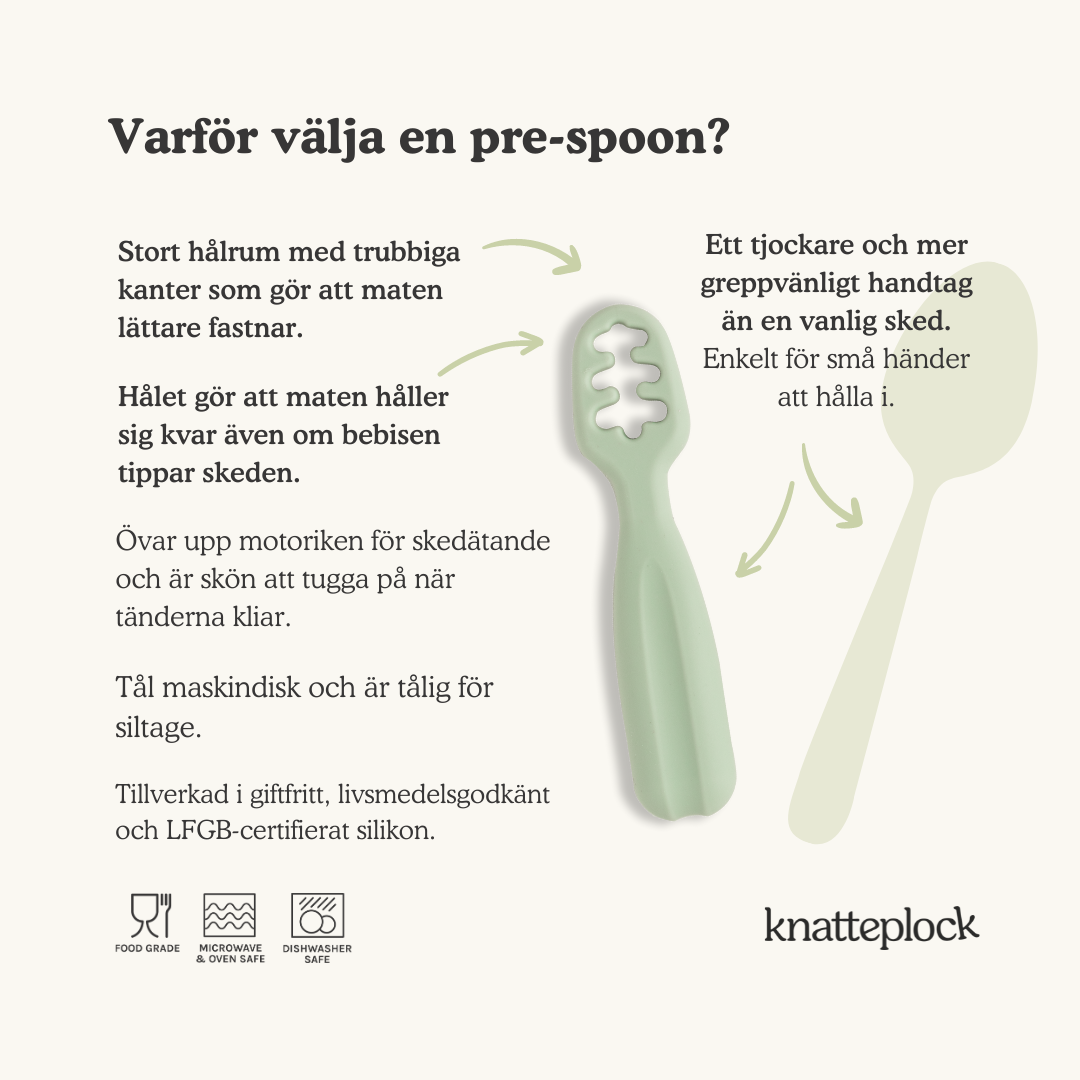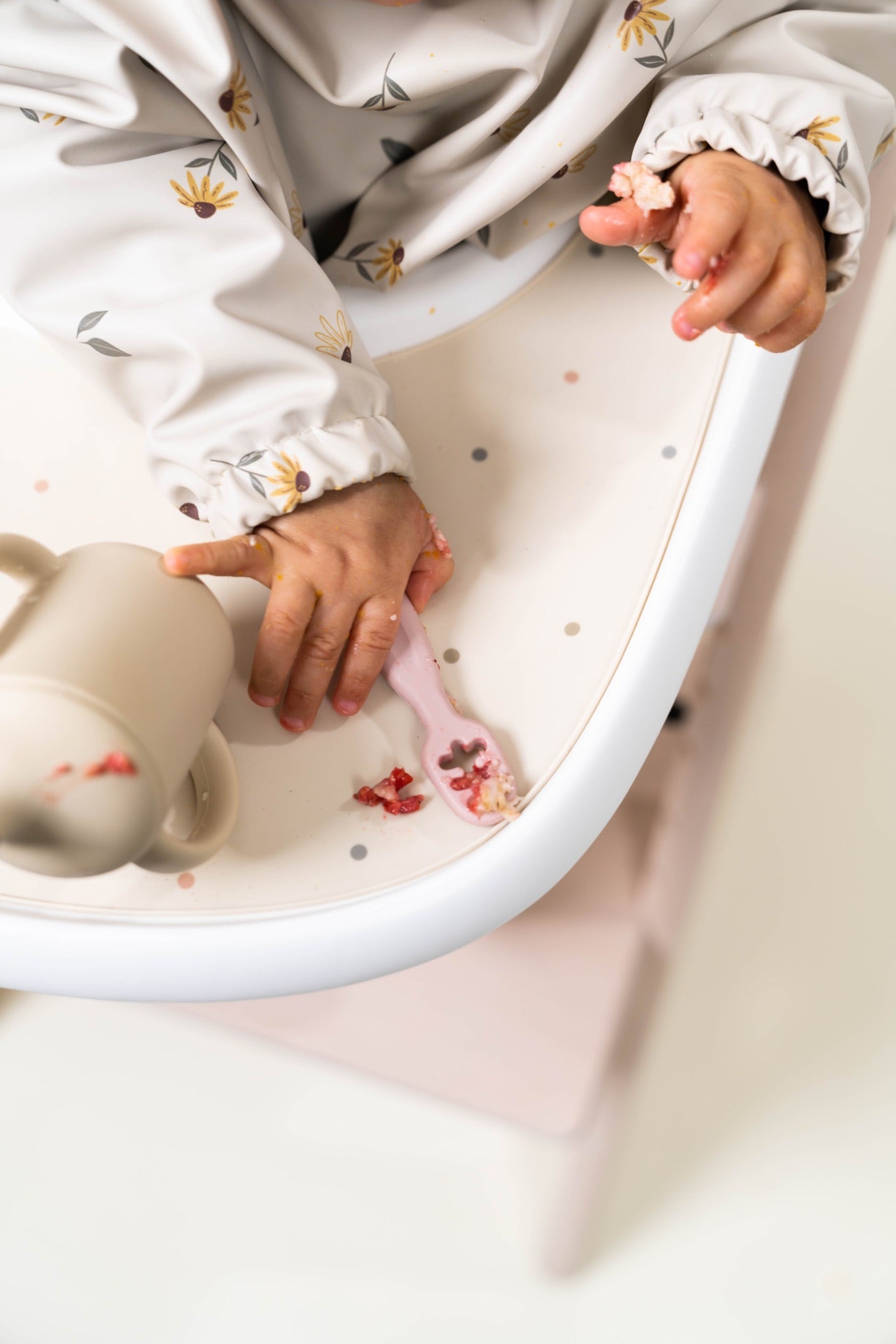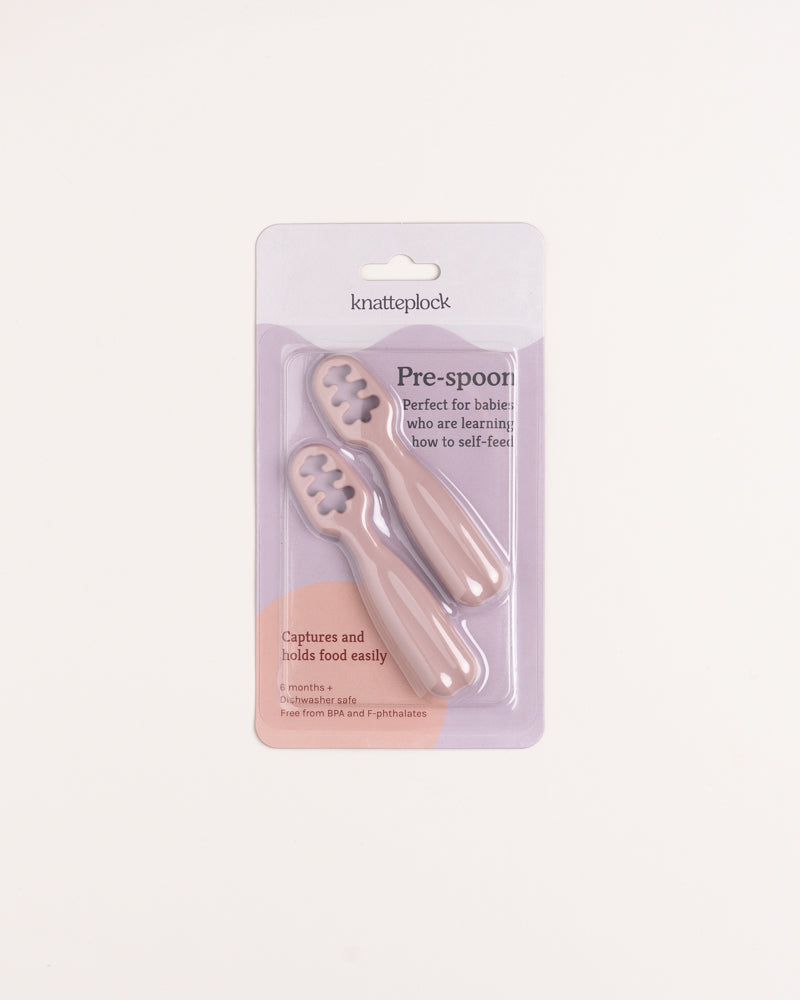Most babies go through a phase where they often take very large bites. This is because the baby has not yet learned what a proper bite is. Or has the motor skills to bite off bite-sized bites. Some children also love to eat and like to put a lot of food in their mouths for this reason.
As a parent, it can be scary to watch when the baby has a mouth full of food. Many are afraid that the baby will bite off a big piece and put it down their throat.
However, the fact is that big bites do not automatically mean the baby will choke:
Large pieces of food more easily trigger the chewing reflexes in the mouth. So with a little patience, the baby can often chew down the piece of food.
If the piece of food will be too difficult for the baby to handle, it will probably come out again (either by spitting it out or swallowing it).
The may also trigger a swallowing reflex that allows the baby to swallow the piece even if it has not been chewed enough. This is not dangerous.
Remember that we have two passages in the throat, a trachea and an esophagus. Just because the child bites off a large piece does not mean it will end up in the wrong throat. It takes more than that for the piece to end up in the wrong throat.
If the child bites off a piece of food that is hard to handle, it is best to sit near the child and stick your tongue out yourself and put your hand in front of the child's mouth. Stay calm and try to get the child to spit out on their own. Avoid putting your fingers in the baby's mouth, as this can make the situation worse.
Of course, safety also depends on the texture of the food. It must be soft enough for the baby to crush it in his mouth. Otherwise, both small and large pieces are risky if the food is too hard.
Generally, this works out very well if you do not make a big deal out of it. And over time, the bites become smaller, the more the child gets to practice.
/Elin Oresten
Lic. nutritionist
More from Knatteplock:

Are you afraid that your child will choke when you offer him finger food?

